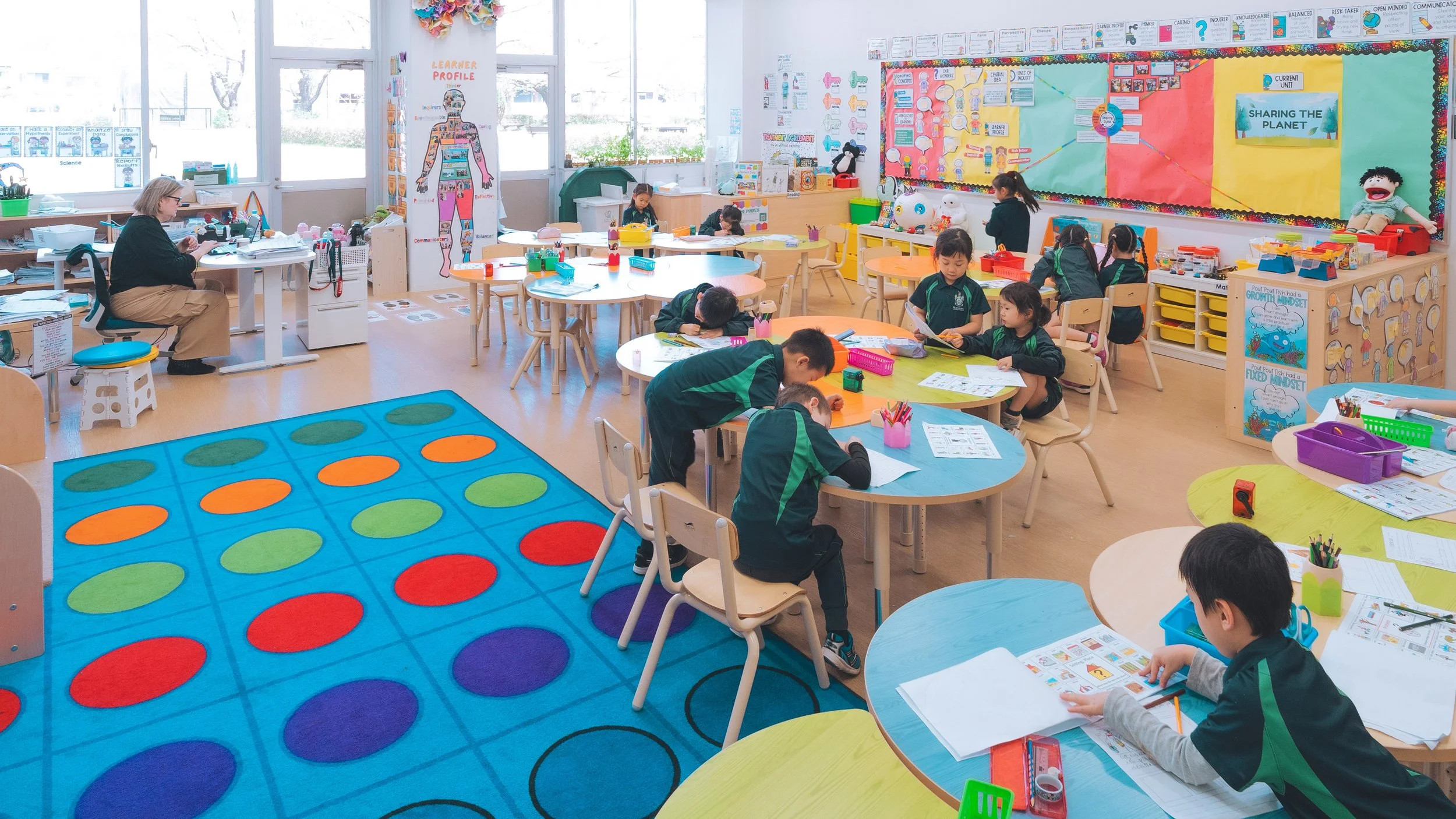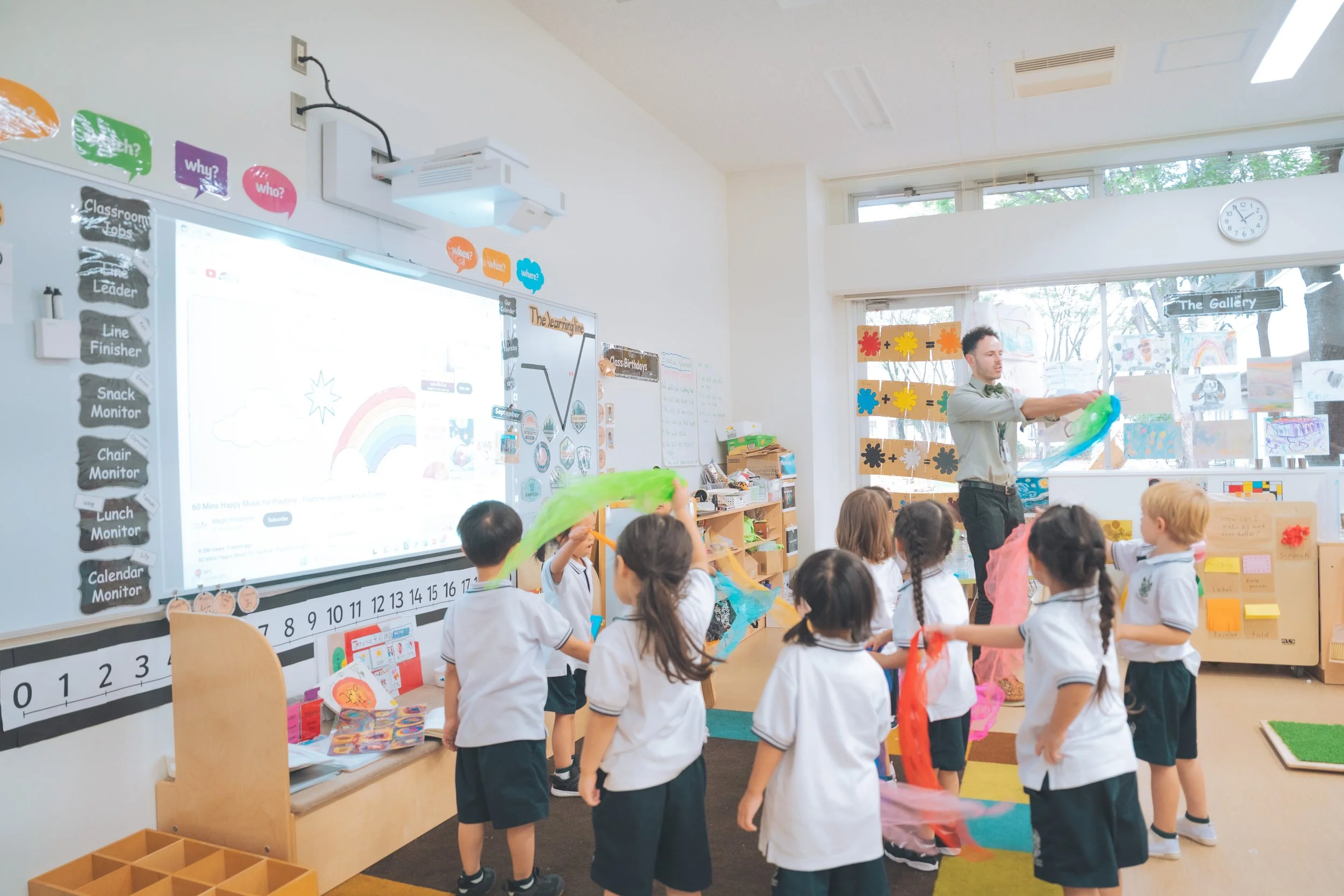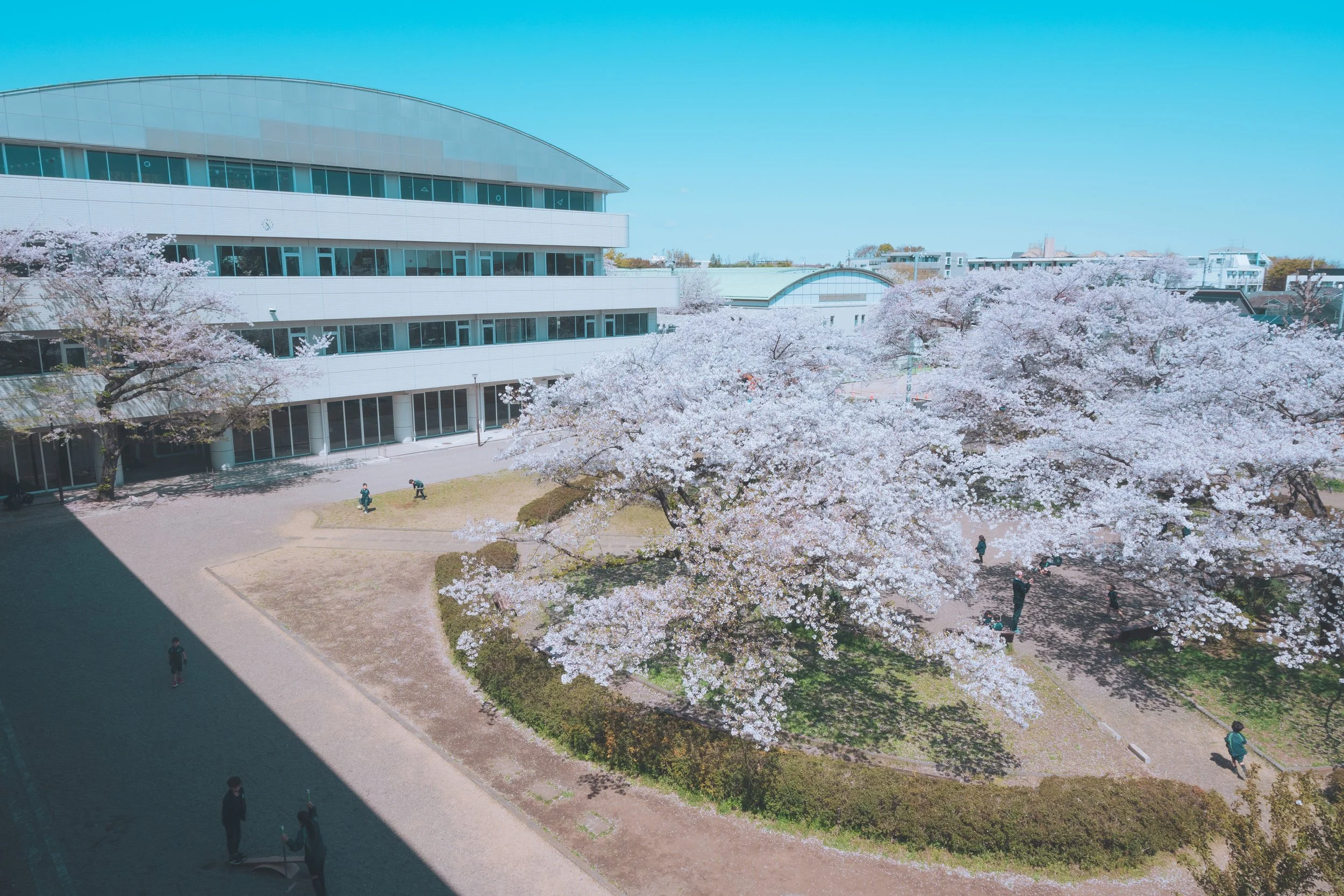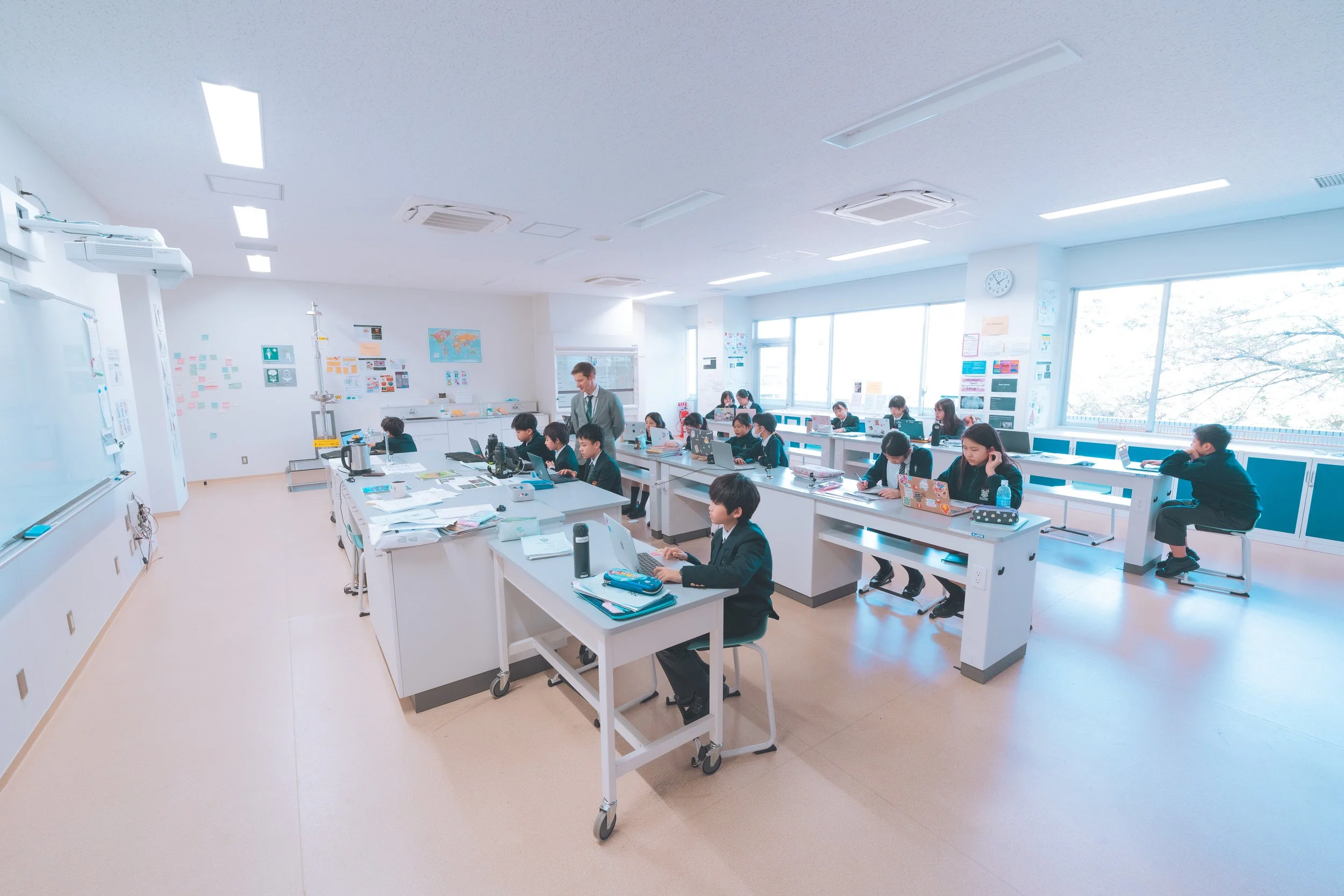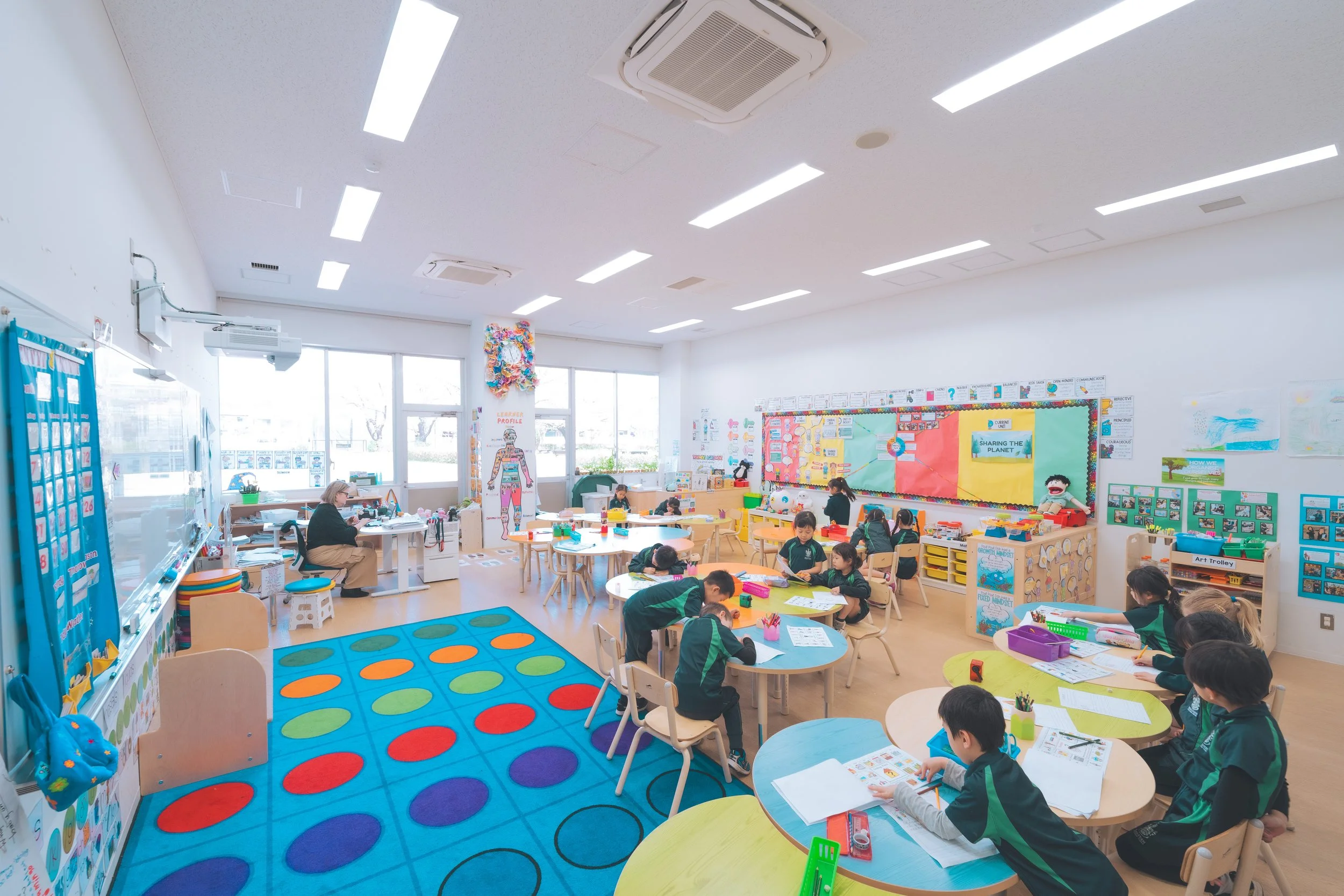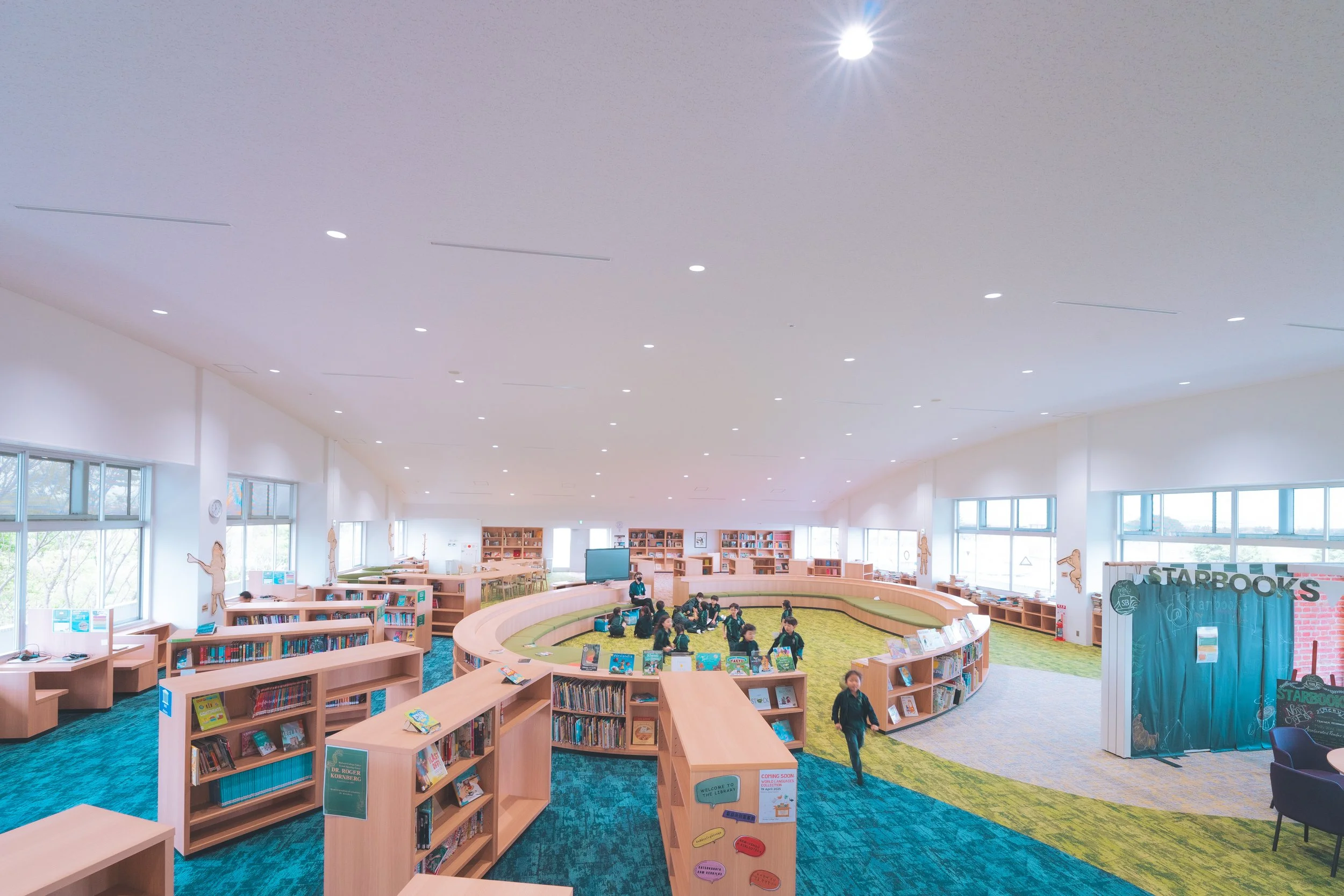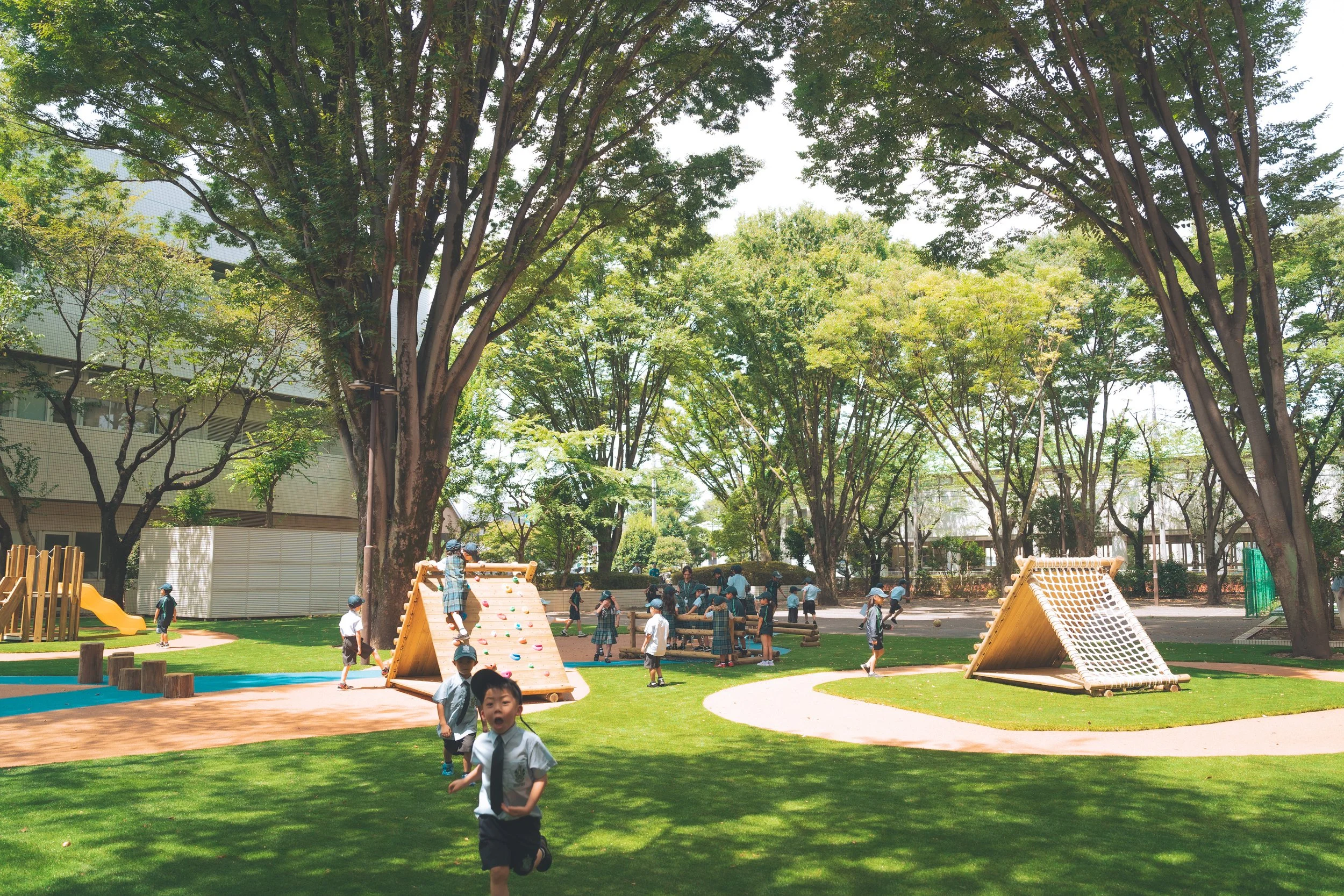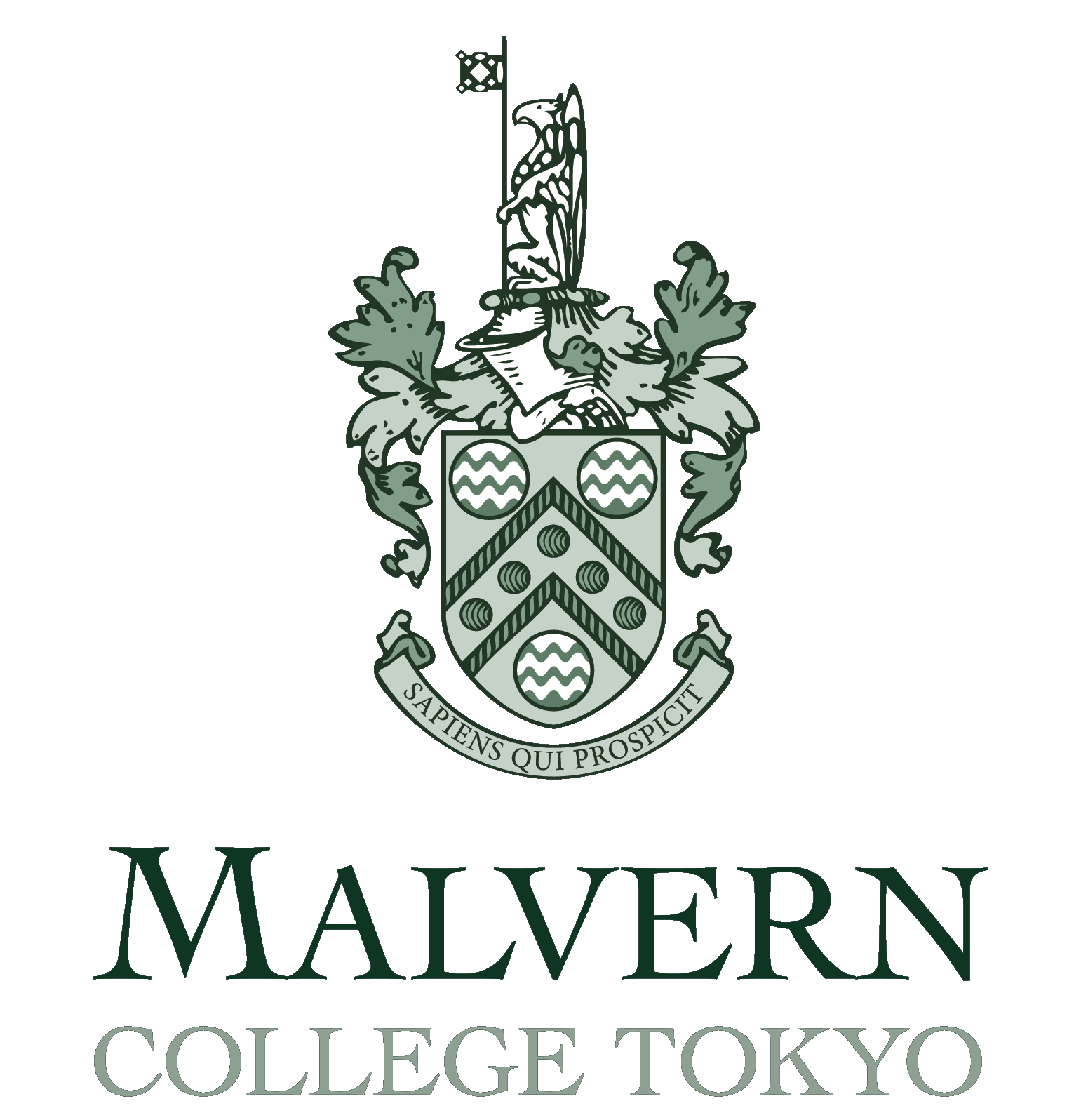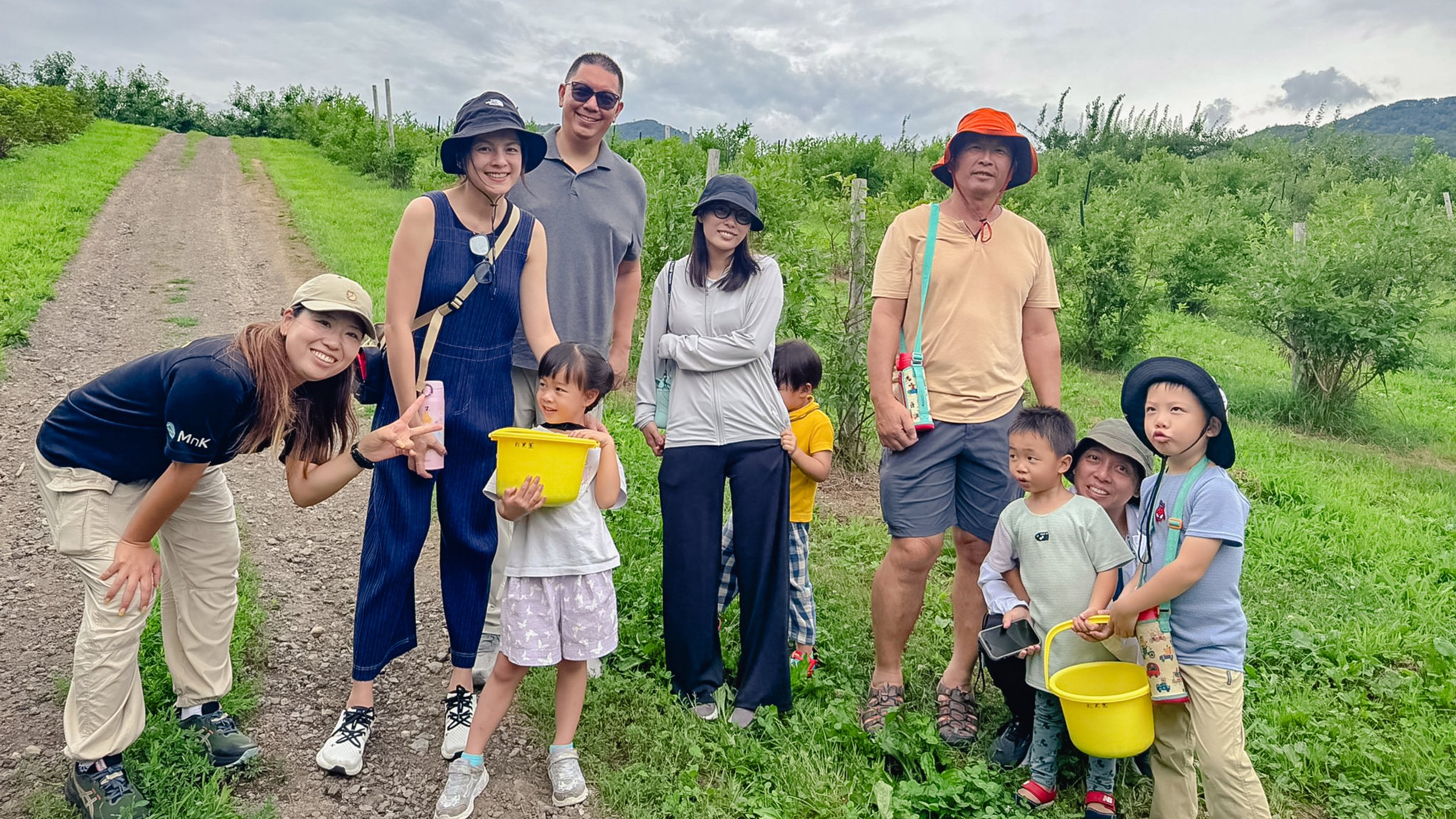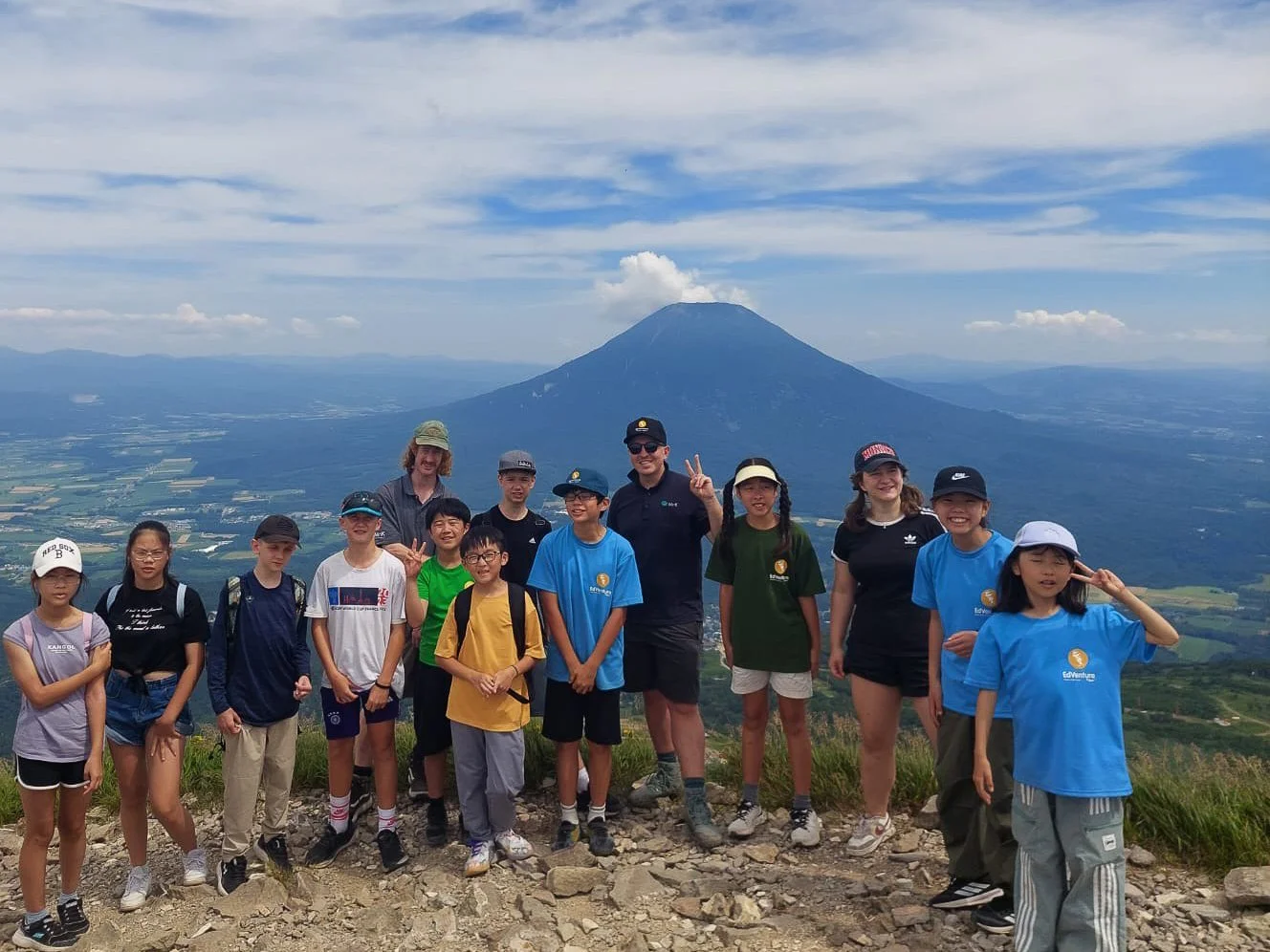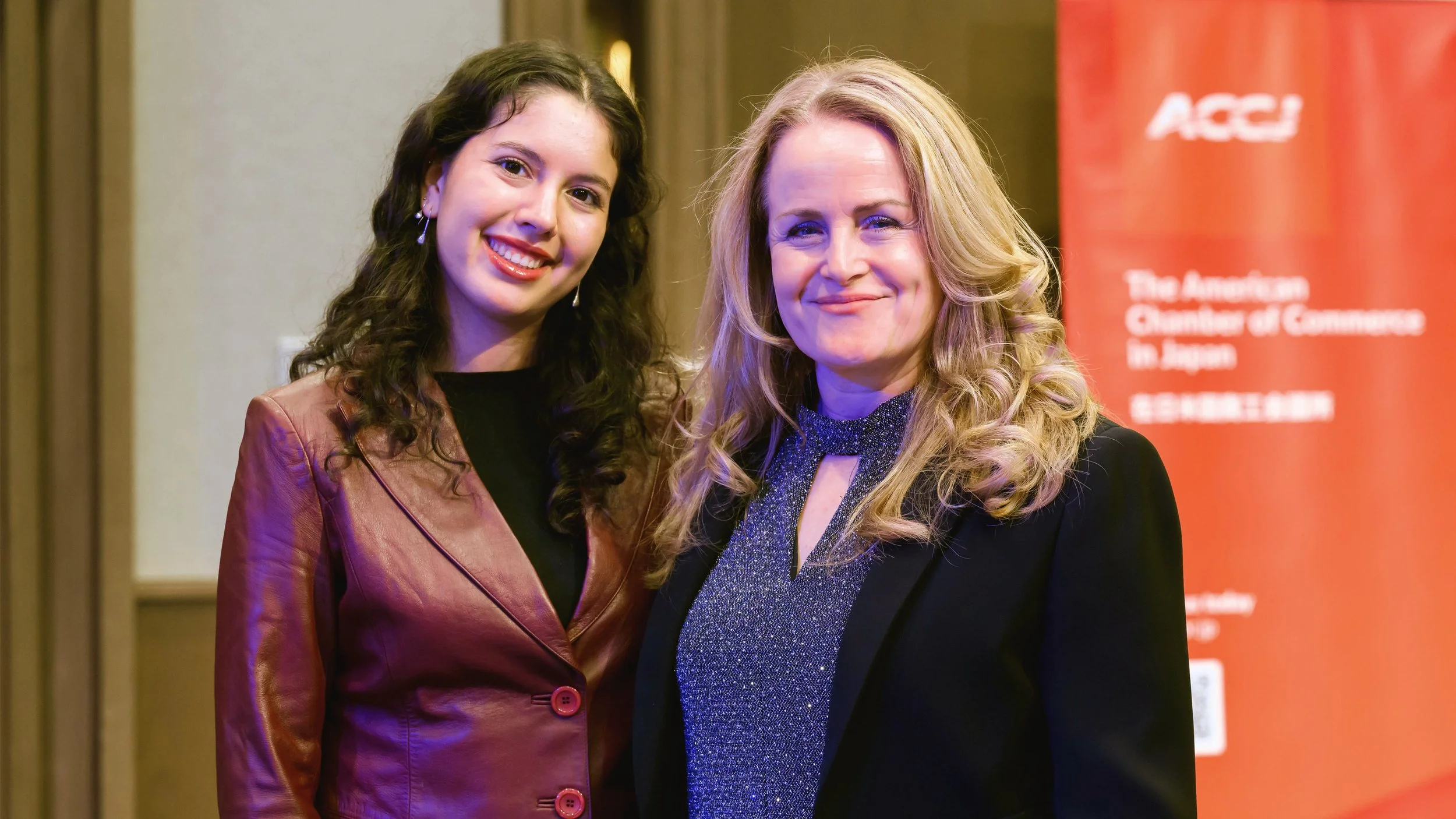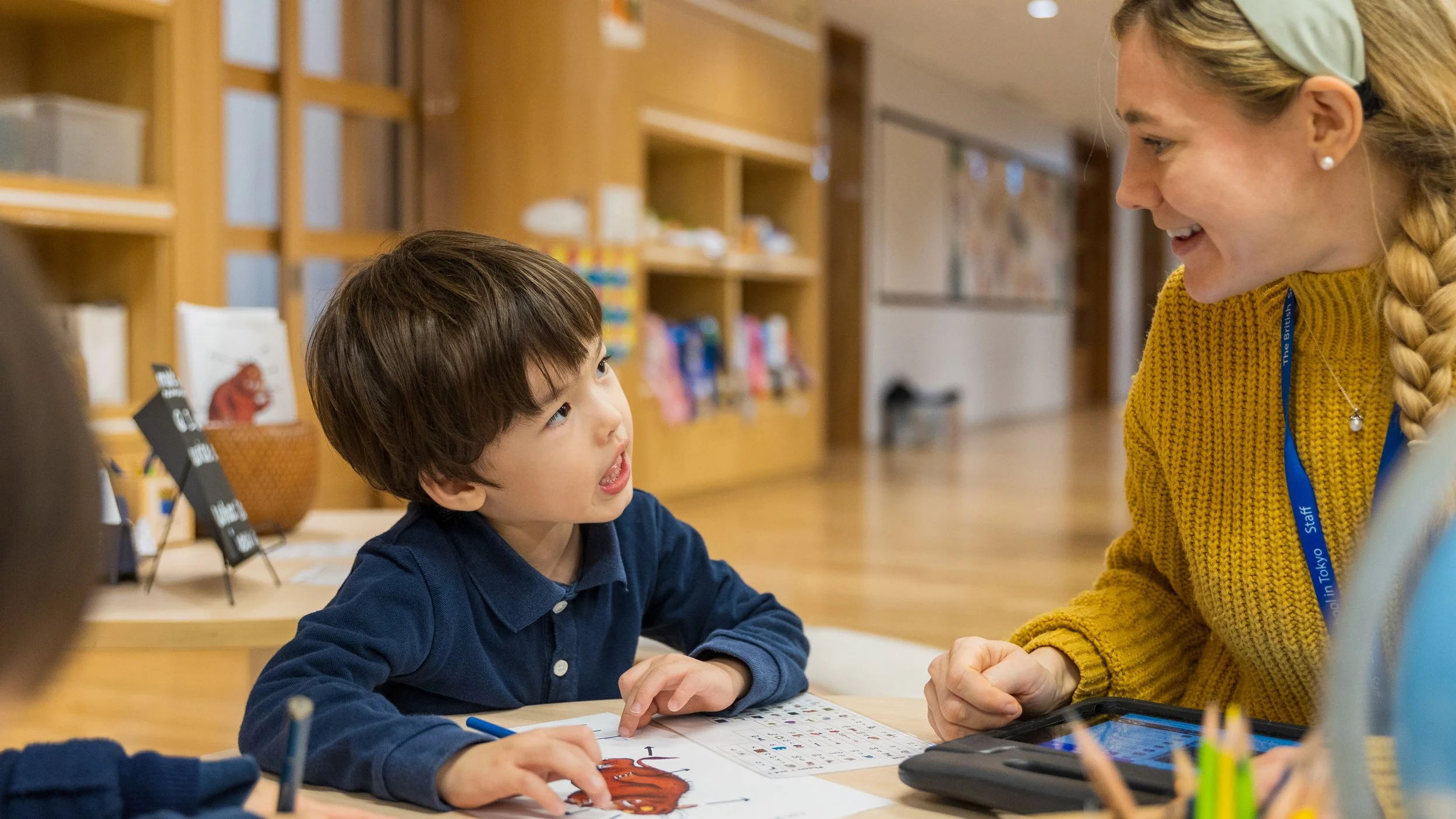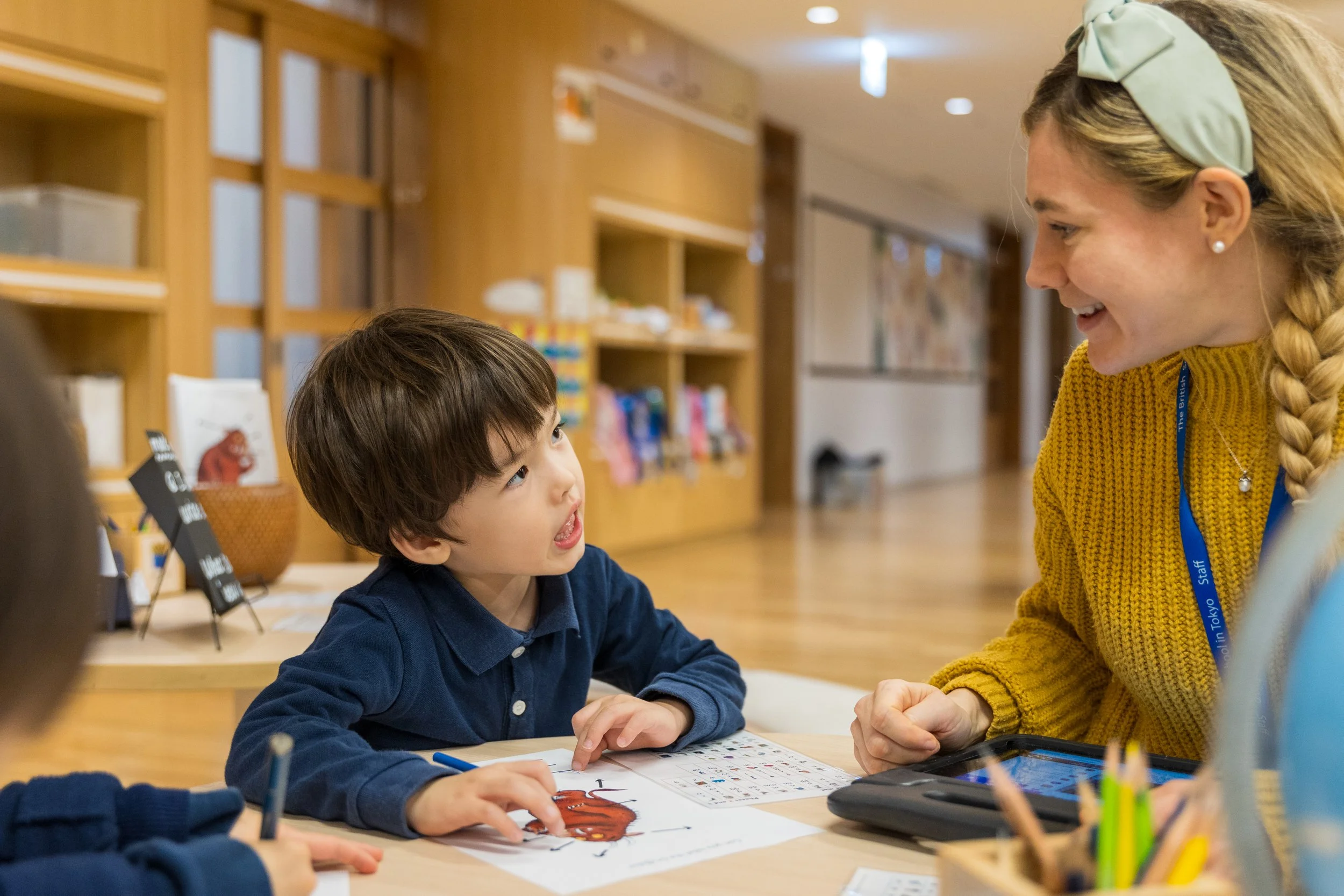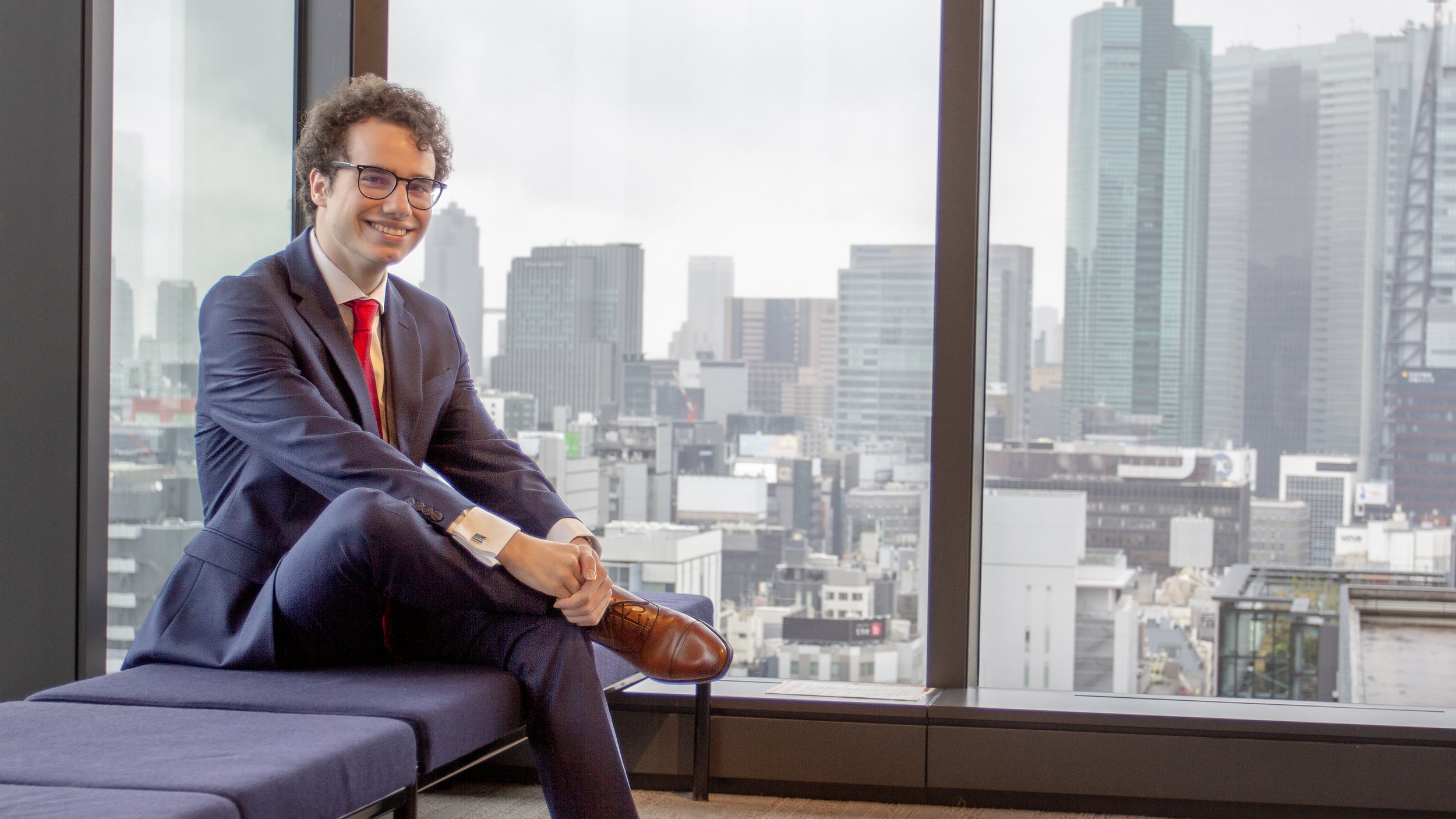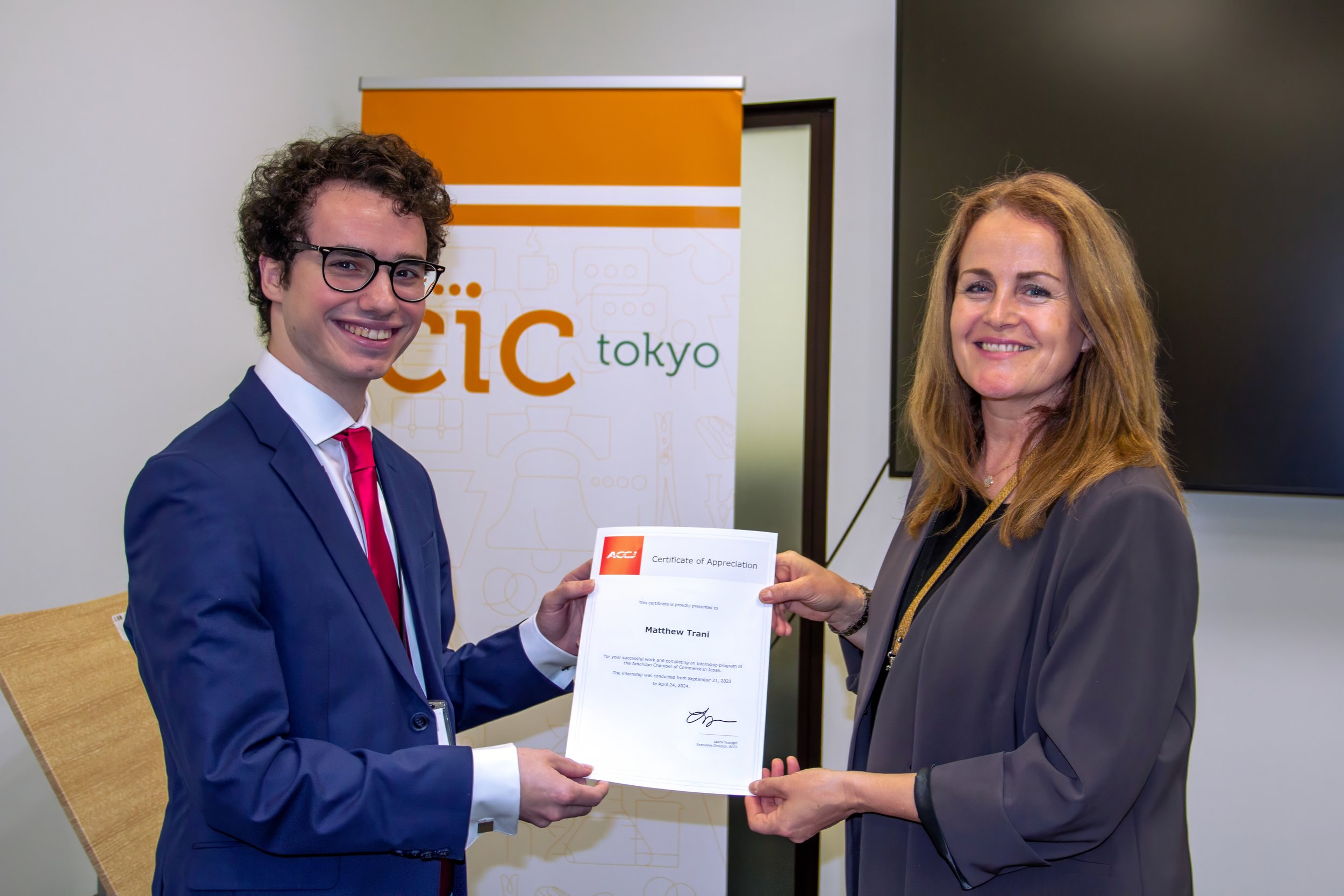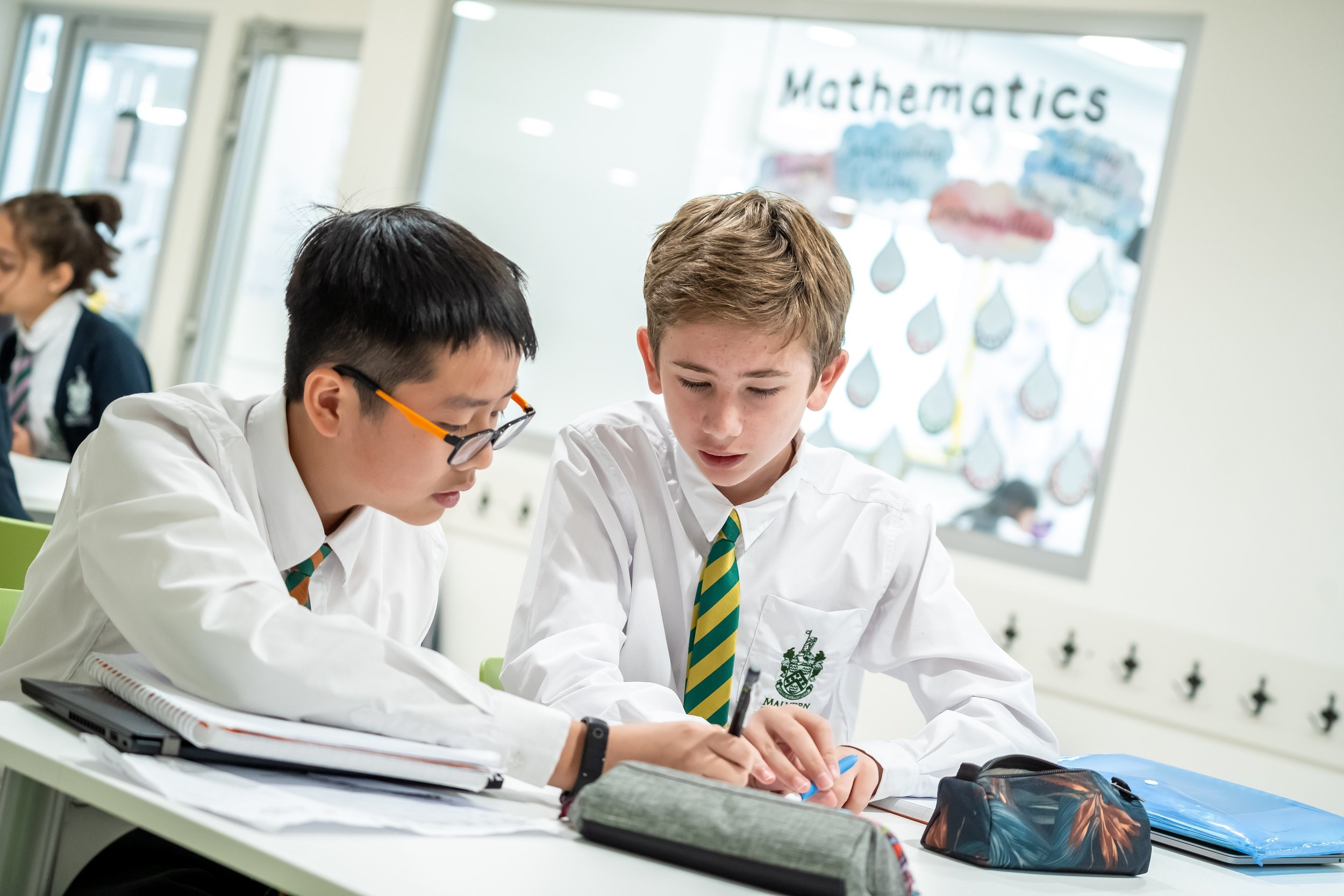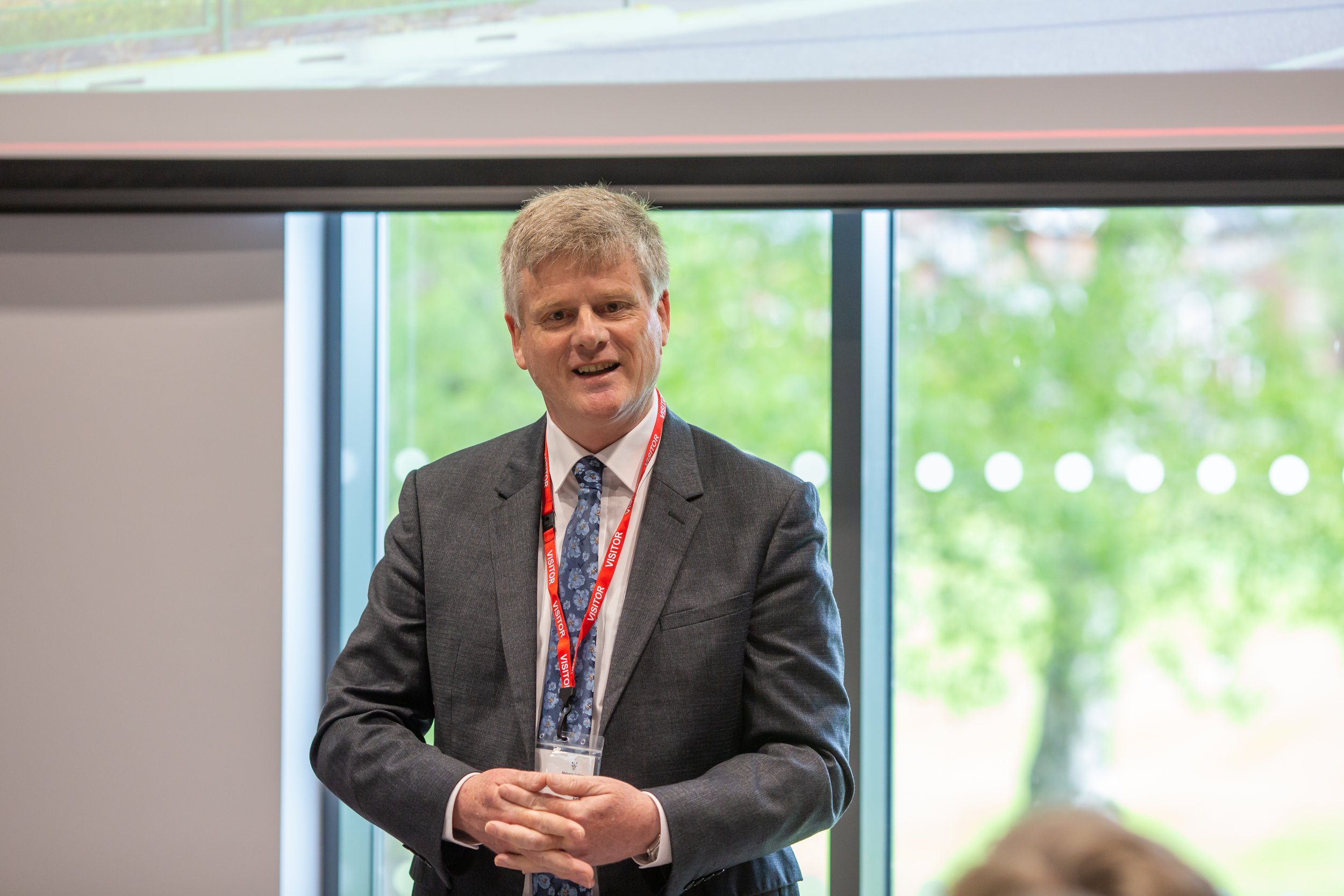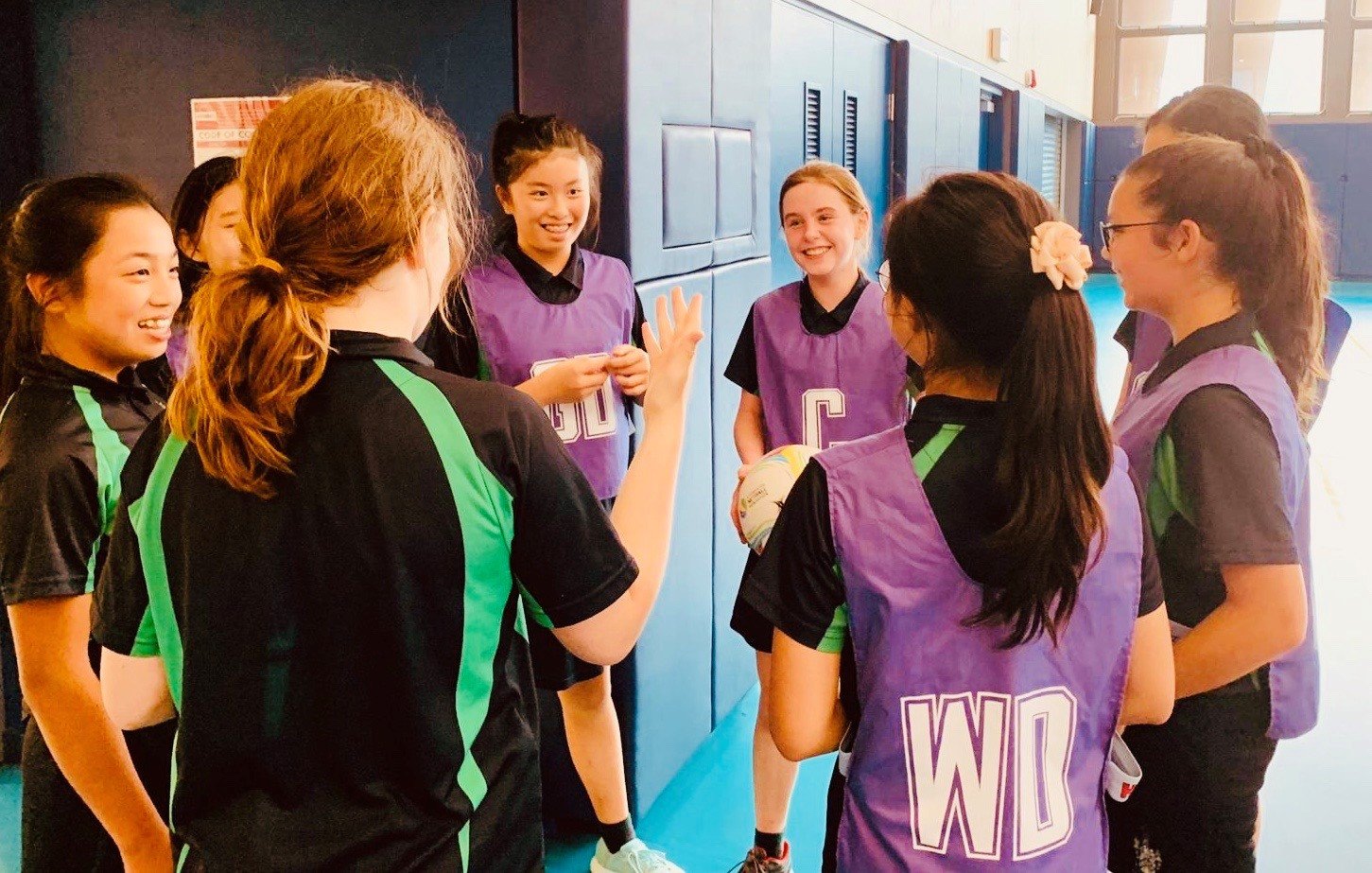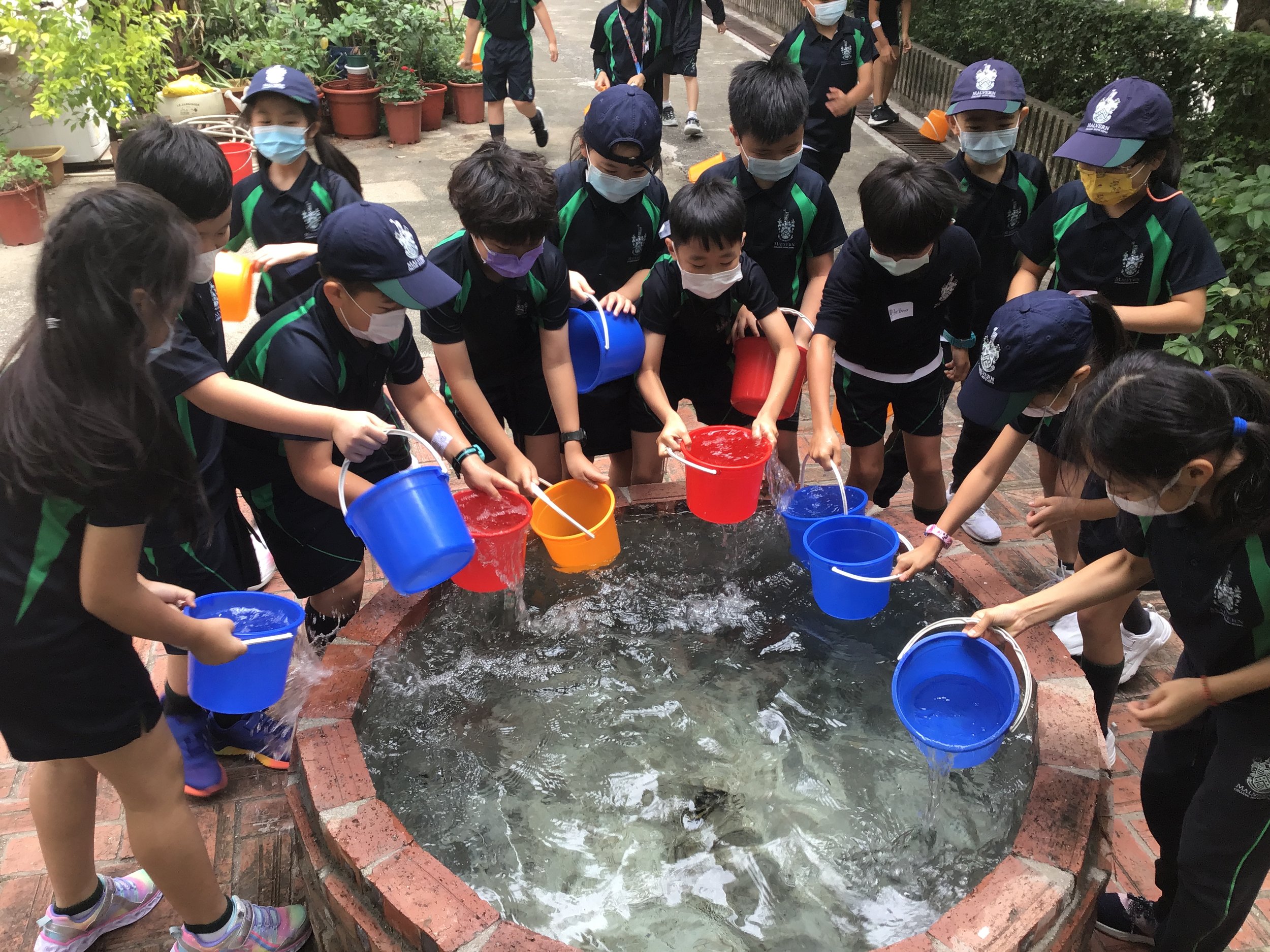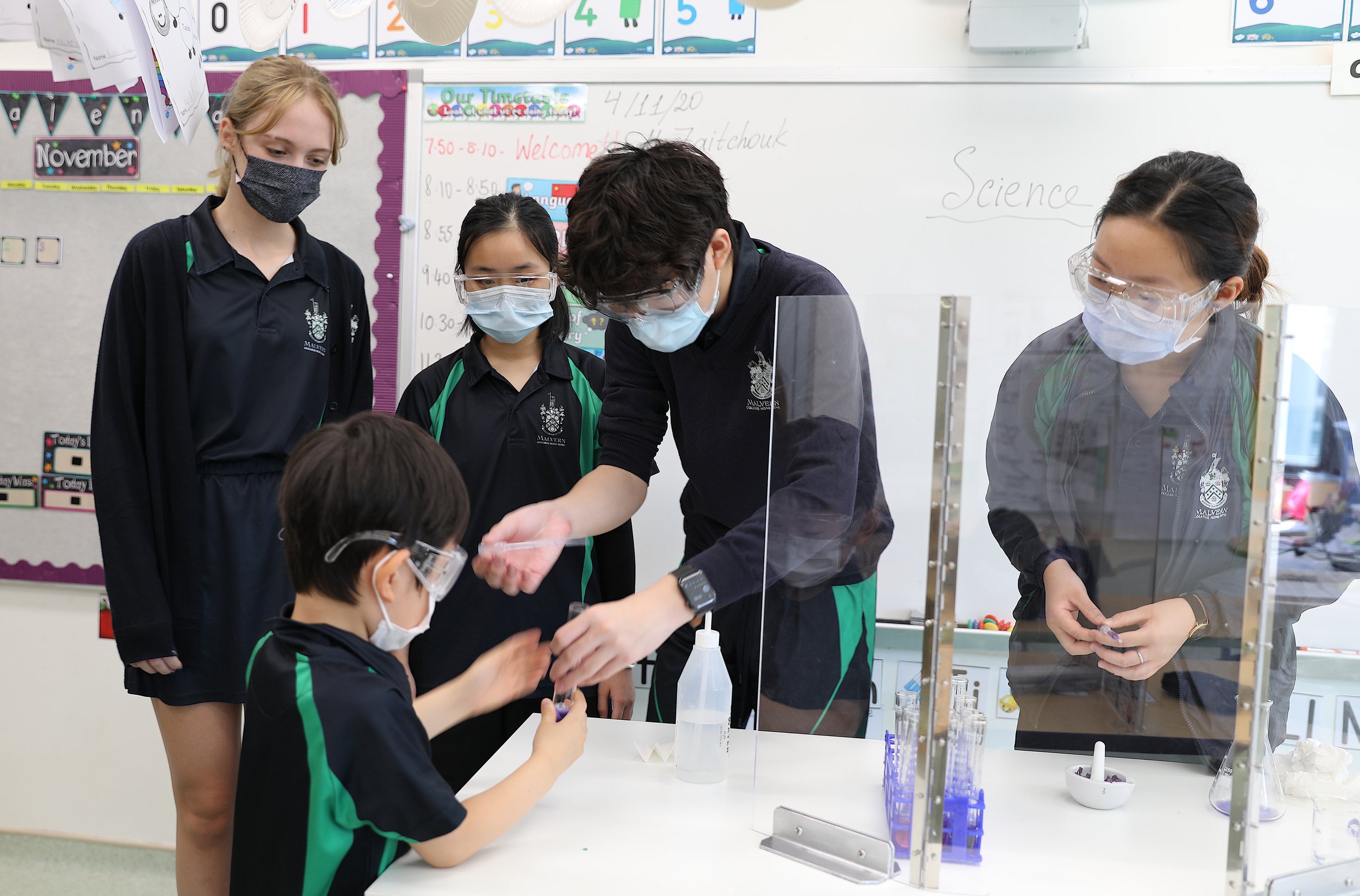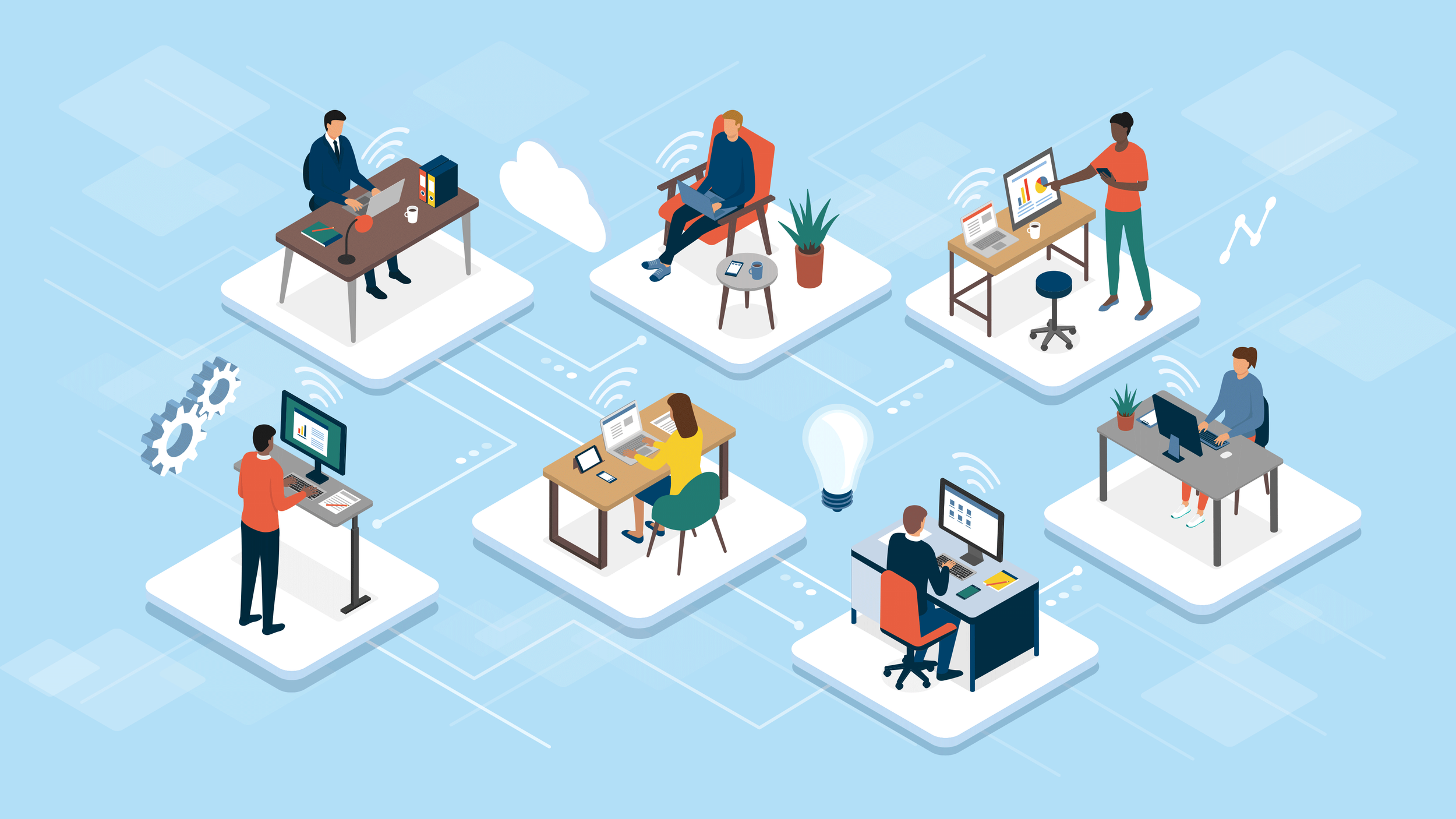Nurturing Global Citizens
Bringing more than 160 years of UK educational history to western Tokyo, Malvern College’s Kodaira campus offers an international learning environment with small classes, outstanding facilities, and and strong support.
Malvern College Tokyo prepares young people for a vibrant future.
Bringing more than 160 years of UK educational history to western Tokyo, Malvern College’s Kodaira campus offers an international learning environment with small classes and strong support.
Part of the Malvern College family, the school focuses on inquiry-based learning, nurturing independence and problem-solving skills while instilling a love of discovery in its students. Incorporating a British approach to teaching, it offers an excellent standard of education, covering not only traditional academic subjects but also entrepreneurship, financial literacy, design, and social and emotional learning, as well as science, technology, engineering, arts, and mathematics (STEAM) disciplines to give students a well-rounded foundation that prepares them for the road ahead.
As an accredited IB World School, Malvern College Tokyo currently offers the Primary Years Programme and the Middle Years Programme, and is working towards offering the Diploma Programme, providing students a complete pathway from age four to 18.
The school engages in a global exchange program with Malvern College UK as well as shorter exchanges with other Malvern schools, exposing students to new environments and broadening their horizons.
Its approach is supported by outstanding facilities, including science labs, a STEAM and design room for science and engineering, a two-story gymnasium and all-weather pitch for sports and fitness, a library, and expressive and visual arts studios to foster imagination and promote creativity. A cafeteria, the signature Sakura Garden, and both indoor and outdoor play spaces nurture students’ overall wellbeing and engagement. These facilities accommodate a variety of opportunities for students in performing arts, sports, and enrichment activities, allowing them to develop talents and interests beyond the standard curriculum.
Malvern places a strong emphasis on pastoral care, keeping class sizes small and providing dedicated tutor time to ensure each individual is acknowledged and supported. Students’ bonds with each other are nurtured through a traditional British House system, which places students in houses to foster team spirit, enhance belonging, and enrich school life. This extends into the local community, as the parent group, Friends of Malvern, works to strengthen the partnership between families and the school.
For families interested in learning more about what Malvern College Tokyo has to offer, the school operates the 360° Malvern Experience, which includes tours and workshops that allow parents to experience firsthand what it’s like to be a Malvern student. The first step in the program is an information session called Malvern Meet, which will take place on January 28. This will be followed by weekly tours available in both English and Japanese.
To find out more: malverncollegetokyo.jp
Back to Nature
For many travelers, Niseko is synonymous with winter. But with year-round operations, MnK is offering programs that help children build confidence, develop problem-solving skills, and forge friendships that extend beyond summer.
EdVenture camps blend outdoor discovery with English skills in Niseko.
For many travelers, Niseko is synonymous with winter. When Midori no Ki (MnK) founders Chi and Eddie Guillemette began operations nearly 20 years ago, they focused on building homes where families could enjoy the region’s legendary powder snow with more space, privacy, and comfort than traditional Japanese hotels. After spending a summer in Niseko with their young family, they also recognized that other families would benefit from a program combining adventure and education. EdVenture Kids Camp was born.
Their first development, Country Resort, introduced this new type of stay in Niseko and set the foundation for future real estate developments at The Orchards Niseko, Akazora, and Takeo Drive. As these neighborhoods flourished, MnK evolved into a year-round hospitality company with diversified offerings: food and beverage outlets, property management, real estate services, a ski school, and concierge services.
The shift to year-round operations enabled MnK to attract and retain full-time staff rather than relying on seasonal workers. More families began discovering the region for its farm-to-table cuisine, hiking, rafting, cycling, and unhurried pace that contrasts sharply with urban life across Asia. Parents sought destinations where their children could spend meaningful time outdoors, develop new skills, and build friendships—needs that EdVenture’s experiential learning programs were designed to fulfill through Niseko’s forests, rivers, farms, and open spaces.
The EdVenture program’s reputation for helping children gain independence and outdoor confidence attracted the attention of Les Elfes, the prestigious Swiss-based provider of ski trips for international schools seeking to expand into Asia. MnK partnered with Les Elfes by investing in the infrastructure necessary to deliver safe, high-quality overnight programs for older children.
In 2025, the EdVenture Activity Center was completed, featuring a commercial kitchen, dining room, and extensive indoor/outdoor facilities that serve as the operational hub for the week-long programs. Over the past two years, MnK has constructed four dedicated camp lodges with 80 beds to provide safe, comfortable environments for campers. Each lodge has on-site staff supervision and thoughtfully designed spaces for connection and rest.
EdVenture’s overnight summer camps combine outdoor adventure with structured skill development. Campers engage in hiking, biking, river rafting, orienteering, cooking, team challenges, and creative age-appropriate projects that transform the natural environment into an interactive classroom. Days are purposefully active and varied, while evenings emphasize group activities, reflection, and community-building. Conducted entirely in English (with Japanese and other languages supported), the programs help children build confidence, develop problem-solving skills, and forge friendships that extend beyond summer.
MnK offers camp formats to accommodate diverse family needs:
- Weekly Camp (ages 3–9) blends hands-on adventures with an overnight camping trip, giving children the chance to build confidence, practice English through activities, and connect with nature while trying new things in a supportive, screen-free environment.
- Overnight Camp (ages 8–17) offers a full week of discovery and personal growth, with dedicated lodges for a comfortable stay as kids unplug, make new friends, practice English naturally, and explore the outdoors.
All programs are staffed by trained, experienced leaders who understand child development, outdoor safety, and the critical importance of creating supportive environments where children can thrive.
Registration for summer 2026 is now open.
ACCJ families enjoy a 15-percent discount off the 2026 summer rates until February 1 using the discount code ACCJ15.
Capacity is limited, so families are encouraged to secure their preferred program dates early.
For more information and registration, visit EdVenture or contact stay@mnkniseko.com.
Talent Exchange
Faced with a dwindling workforce, companies in Japan are locked in fierce competition to find young talent who can carry the organization forward and inject it with fresh ideas and vitality. Many overlook an option that offers tremendous advantages for employers and students alike: internships.
The ACCJ Internship Portal gives businesses and students a leg up on the competition.
Faced with a dwindling workforce, companies in Japan are locked in fierce competition to find young talent who can carry the organization forward and inject it with fresh ideas and vitality. Many overlook an option that offers tremendous advantages for employers and students alike: internships.
A survey by the National Association of Colleges and Employers—a 60-year-old professional association that connects more than 17,000 college career services professionals, early talent recruiters, and business solution providers—found that 84 percent of graduating seniors in 2025 participated in an internship, co-op, or other experiential learning program.
Students in Japan also take part in off-campus learning at a high rate—more than 85 percent according to a 2025 Mynavi survey—but the experiences tend to be shorter and less hands-on compared with those in the United States.
To help connect students with internship opportunities offered by American Chamber of Commerce in Japan (ACCJ) member companies, the chamber launched the ACCJ Internship Portal in 2017 and has continued to grow the platform.
The mission is to offer an opportunity to attract, engage, and cultivate the next generation of leaders, while promoting professional development of students.
ACCJ member companies are invited to share internship opportunities through the ACCJ website, allowing students to easily explore options.
APCO, Big Picture International, Boeing, Cezars, EY, Fidel Technologies, Hays, the InterContinental Osaka, Kenja, and Morgan Stanley are among the many organizations that have shared openings through the ACCJ Internship Portal.
The ACCJ Education Committee started revamping the Internship Portal last January by expanding participants to students studying in Japan, maintaining the portal year-round, improving its look and accessibility, and increasing the number of sponsors. The changes have attracted more than 5,000 visitors to the site.
Company Benefits
Alan Brender, co-chair of the Education Committee, sees some companies hesitating to embrace interns. “Often they don’t understand what an internship entails, and they might think it will be too time-consuming, difficult, or expensive to offer a program.”
But there are many benefits that companies can reap from welcoming those preparing to enter the workforce into their office. These include:
- Recruiting advantage
- Enhanced employee performance
- Fresh ideas from young talent
- Cost-effective project assistance
- Improved brand recognition
Small companies can also reap these benefits, but often dismiss the idea because they believe they do not have the resources to provide interns with support. To overlook internships, however, would be to miss a great opportunity. All that is needed is to have a manager take one or two interns under their wing and get them involved in the operations of the company. Soon, even the smallest organizations can benefit from the energy and insights of dedicated interns.
Business Boost
Without a doubt, the opportunities being offered through the ACCJ Internship Portal are getting results.
“Students who take internships have real-life experience they cannot get from a part-time job,” said Nanami Takeuchi, an international business student at Temple University, Japan Campus (TUJ) who has been interning with Japan Travel since May 2025.
“It’s different working in an office than at a part-time job. There are more chances to interact with a variety of people, and the internship helps prepare you for a future career. I can see that value. Interns also benefit from working with people of different ages, backgrounds, cultures, and skills.”
The value goes both ways.
“There are so many benefits,” explained Erica Adams, director of the Career Development Office at TUJ. Adams has assisted TUJ students since 2009 as a career adviser. “It can be a great way, of course, to scout talent, and if it’s a company that hires new grads, it can be a pipeline into the organization. I think there is a really low chance of a mismatch if they hire somebody who has been successfully interning with them for a few months. The intern understands what they’re getting into, and the company understands the person they’re hiring, so it can be a really fail-safe way of onboarding new staff without spending a lot of resources on recruiting.”
Adams added that having junior staff manage an intern can be a great way to develop the leadership skills and groom them for management positions.
Hands-on Learning
The experience of Bobur Gulnetov echoes Adams’s advice about the recruitment benefits for companies. While a student at Lakeland University Japan, he did a three-month internship at the Peninsula Hotel.
“It was a great opportunity for me to develop a strong foundation in hospitality,” he said. “I learned teamwork and to pay attention to small details, which is really important in a corporation and also in personal life. Even though small mistakes might happen, because we are all human, the Peninsula taught me that paying attention to small details will help us with hands-on experience in guest relations and problem-solving. We can learn the expectations of guests, who expect the best. The internship helped build new skills. And at the end of the internship, I was employed full time at the hotel.”
Soren Dickson, who interned at the ACCJ in 2024, said that internships expose you to professionalism. “As a student, you hear about it, but you don’t really experience it. Interning is role-playing as an adult, learning how to be part of a team and what you are good at.”
The TUJ student built on that experience by joining the office of Diet representative Taro Kono for a three-month internship during which he researched the Japanese defense budget and defense industry and prepared briefings.
Get Started
Finding talent through the ACCJ is easy. Member companies can submit details of open positions through the chamber website. A list of guidelines and best practices is also available for those looking for ways to build the best two-way experience and mentor the next generation of talent while at the same time elevating their own success.
Visit the Internship Portal on the ACCJ website to get started.
Incredible Opportunity
Isabella Boulware shares her experiences interning at the ACCJ and how the Bishop Family Memorial Scholarship continues to open doors for young talent.
The Bishop Family Memorial Scholarship continues to open doors for young talent.
Photo Miki Kawaguchi/LIFE.14
From left: Isabella Boulware and ACCJ Executive Director Laura Younger
When Isabella Boulware logged on for a virtual meeting with the U.S.-Japan Bridging Foundation, she thought it was just a second-round interview for an internship. So when she was told she had been selected as the next American Chamber of Commerce in Japan (ACCJ) Bishop Memorial Scholar—a fellowship that honors late ACCJ leader Bill Bishop and his family—she was a bit surprised.
“I was thrilled,” said the Austin native. “I hadn’t planned on working during my time in Japan, but when I received an email about the opportunity, I knew I had to go for it.”
An international business management student at the University of Arkansas, Boulware, whose minors include Japanese, has been on a yearlong exchange at Toyo University in Tokyo since September. She spoke to The ACCJ Journal about her experiences at the chamber so far.
What was your first impression of the ACCJ?
Very positive. I researched the chamber when I first learned about the internship. As someone from the United States with an interest in working in Japan, the ACCJ’s mission immediately stood out to me. The team I’ve worked with, the professionals I’ve connected with, the events I’ve helped put together, and the projects I’ve contributed to have all made the experience incredibly impactful.
In which areas have you been most involved?
I’ve had the chance to take on a wide range of projects, which has been one of my favorite parts of working with the chamber. I’m still exploring where I want to focus in business, and the ACCJ has given me the opportunity to explore different aspects of the field. That’s helped me get a clearer sense of what I’m aiming for.
What has been your favorite event?
My first event was both my favorite and the one that left the biggest impression. It was on my first official day and was my introduction to the ACCJ. It was Building the Future of The Estée Lauder Companies in Japan, delivered by President and General Manager James Aquilina. I was impressed by the quality of the presentation and his effectiveness as a speaker. That event gave me a clear picture of the kind of professional I hope to be in the future.
How will you maintain your relationships?
I believe the relationships I’ve built at the ACCJ will continue to be an important part of my professional life. I plan to stay in touch with the people I’ve met, both personally and professionally. My coworkers, in particular, have become some of my good friends. Professionally, I will maintain connections through LinkedIn, email, and ongoing collaboration, ensuring that the relationships I’ve formed continue to grow.
What would you tell future Bishop Scholars?
This internship is an incredible opportunity. Make the most of each and every part of it. The ACCJ gives you a chance to work on a variety of projects and to meet people from across many industries. Build relationships during your time with the chamber; these are people who may be able to support you as you pursue your future.
Holistic Learning
For more than 36 years, The British School in Tokyo (BST) has welcomed families from around the world. In 2025, BST was named to the Spear’s Index Top 100 Private Schools in the World list—recognition of its continued commitment to educational excellence.
The British School in Tokyo meets the needs of today’s global community.
For more than 36 years, The British School in Tokyo (BST) has welcomed families from around the world, providing an inclusive and holistic education grounded in the values of excellence, integrity, and lifelong learning.
In 2025, BST was named to the Spear’s Index Top 100 Private Schools in the World list—recognition of its continued commitment to educational excellence. Today, as the school grows and innovates, it remains dedicated to nurturing each student’s unique potential, from their earliest years through to senior school.
A Welcoming Start
At BST, learning begins early, and joyfully. Children can join from age three, entering a warm, nurturing Early Years environment designed to support curiosity, creativity, and social-emotional development. These foundational years build the confidence, independence, and love of learning that carry students forward.
Central to Early Years is BST’s commitment to “learning through play.” Play is not simply recreational; it forms the basis of meaningful learning for young children. Through purposeful, child-led exploration, students develop communication, problem-solving, cooperation, and early literacy and numeracy skills in natural and engaging ways. With thoughtfully designed learning spaces and experienced educators, children explore, discover, and develop a joyful curiosity that stays with them as they progress through their lives.
A Truly Holistic Education
From Early Years through Senior School, BST offers a holistic education that balances academic achievement with character development, creativity, and well-being. A broad and balanced curriculum allows students to discover their talents through sports, music, performing arts, visual arts, outdoor education, and a wide range of extracurricular activities.
A defining feature of a BST education is the extensive program of residential trips across Japan, offered from Year 1 to Year 13. These experiences provide outdoor exploration, cultural immersion, and service learning. Whether skiing in the mountains, hiking in national parks, camping with classmates, visiting museums, or taking part in team-building challenges, students broaden their horizons and experience Japan’s diverse landscapes and rich heritage. These trips encourage independence, resilience, and a deeper understanding of the world.
A Personalized Pathway
To meet the needs of today’s global community, BST now offers the International Baccalaureate Diploma Programme (IBDP) as its core senior school pathway, alongside BTEC qualifications, while ASDAN is available across all year groups. These options ensure that each student can pursue a route aligned with their strengths, ambitions, and learning preferences.
The IBDP reflects BST’s commitment to delivering a future-focused, globally relevant education. With strong foundations in research, critical thinking, global perspectives, and
community engagement, the IBDP prepares students for entry into leading universities and equips them with the skills and mindset needed to contribute meaningfully beyond school.
Embedded in the Community
With BST’s Primary School campus is just two minutes from Tokyo American Club, families value the convenience of having two major community hubs located side by side, helping newcomers settle quickly and strengthening day-to-day connections. The sense of international community is further enhanced by BST’s active and welcoming parent-teacher association, which organizes a rich calendar of events throughout the year, from the vibrant Spring Fair to charity initiatives, book sales, parent gatherings, and student celebrations. These occasions bring families together, fostering friendships and creating an inclusive atmosphere where everyone feels part of something special.
Learn more and begin enrollment: bst.ac.jp/admissions • admissions@bst.ac.jp
Shooting for the Stars with AUW
As the world changes, the future may depend on empowering women and amplifying their voices. The Asian University for Women‘s April fundraiser helps make education possible.
As the world changes, the future may depend on empowering women and amplifying their voices.
Asian University for Women (AUW) graduation ceremony
Growing up in a small village in Bangladesh, Rimu Byadya witnessed firsthand how a person’s background often dictates their destiny.
“It was an unspoken truth, woven into the very fabric of our community,” she told The ACCJ Journal. “Children of farmers grew up to become farmers. Daughters of families with limited means were often married off early, their dreams fading away before they ever had a chance to blossom. The weight of tradition and circumstance shaped the paths of many, leaving little room for dreams to take flight.”
Determined to attend college and inspired by her mother’s generosity in the face of poverty, Byadya set her sights on the Asian University for Women (AUW).
“Watching my mother, I learned that true wealth lies not in what we have but in what we are willing to share. From a young age, I understood that kindness, no matter how small, has the power to change lives.”
AUW, based in the Bangladeshi port city of Chittagong, welcomed its first class of 130 students in 2008. Today, more than 1,700 students from 15 countries representing 35 ethnicities across Asia and the Middle East are enrolled. AUW plays an important role in bringing inclusive and equitable education opportunities to more people, one of the United Nations’ 17 Sustainable Development Goals.
The path to Chittagong, however, was an uphill one. Byadya was met with skepticism and disapproval by some in her community. Neighbors questioned her mother and father, asking: “What’s the point of spending money on a girl’s education? There is no return—better to save for a wedding.”
But her parents had a different vision. “Though they themselves had been unable to pursue higher education beyond high school due to poverty, they were determined to give their three daughters the opportunities they never had,” Byadya explained. “They bore the brunt of societal pressure, standing firm against criticism and ensuring that I could chase my dreams. Their unwavering support gave me the strength to push forward.”
AUW Experience
Upon arriving in the city, Byadya found new challenges. “It was daunting,” she recalls. “I had to navigate an unfamiliar environment, adjust to a different way of life, and prove myself in a place where few expected me to succeed. There was always the underlying notion that I was stepping beyond the bounds of what was traditionally acceptable.”
But her education, she reminded herself, was not just about personal success but about breaking barriers for generations to come. “With every challenge, I grew stronger, proving that investing in a girl’s education is not a loss—it is a transformation.”
At AUW, Byadya found herself surrounded by strong, ambitious women from diverse backgrounds, each with their own struggles and aspirations. “Their stories inspired me to challenge limitations, to dream bigger, and to believe in the power of change. The university was more than just an academic institution—it was a space of empowerment, where I learned that my voice mattered.”
Rimu Byadya shares insights from her journey in public health at the first in-person Global Model WHO, jointly organized by the World Health Organization and the World Federation of United Nations Associations and held October 29–November 1, 2024, at the WHO headquarters in Geneva.
Today, Byadya works to create healthier communities and empower others—especially young girls—through knowledge and access to care. It’s a journey that began during her first year at AUW, when she spent two weeks in a remote village as part of a group of 10 students conducting interviews with 120 mothers of young children.
“Our goal was to understand maternal diets and infant feeding practices,” she recalls. “When we returned to AUW and analyzed the data, we observed significant gaps in both maternal diets and infant feeding.”
The group then worked with their professor to design a small-scale intervention and secure funding. They recruited and trained four community health workers with whom they visited the village every weekend to deliver vital information on maternal nutrition and infant feeding practices.
The experience, Byadya said, was life-changing. “It solidified my passion for public health. The following year, I chose public health as my major. It set me on a path that I continue to walk with determination and purpose.”
After graduating from AUW in 2014 with a bachelor’s degree in public health, she joined the Young Professionals Program offered by the global development organization BRAC, formerly known by its long-form name, the Bangladesh Rehabilitation Assistance Committee. She worked with Ebola survivors in Liberia and Sierra Leone, and also led a team of 5,000 health workers to provide essential healthcare to 10 million people in rural Bangladesh.
Byadya was then awarded the prestigious Commonwealth Scholarship by the University of Oxford to pursue a master of science degree in international health and tropical medicine, a program which she completed.
Since 2022, she has been a technical officer with the World Health Organization in Geneva. But her connection to AUW remains strong.
“The AUW community and network is more than just a professional connection—it is a family,” she said. “From the moment I stepped into AUW, I felt supported by a network of mentors, peers, and alumni who genuinely cared about my growth and success. Even now, whenever I need guidance, inspiration, or even just a reminder that I belong to a strong community of changemakers, I know I can turn to AUW. The friendships, mentorship, and unwavering encouragement from this network continue to fuel my journey.”
More than 350 students from diverse backgrounds unite at Global Model WHO 2024 to simulate the World Health Assembly. Rimu Byadya (far right) shares the stage with Mike Ryan (center right), executive director of the WHO Health Emergencies Programme.
Corporate Support
Ensuring that women have the opportunity to chase their dreams and change their communities as Byadya did requires the collective support of individuals and companies around the world.
According to the United Nations Educational, Scientific, and Cultural Organization, there were about 122 million girls around the world not enrolled in school as of 2024. And in poorer countries, girls are more likely than boys not to complete their education.
This is why the work of AUW is so important—work that is funded by support foundations in Denmark, the United Kingdom, the United States, Hong Kong, and Japan, as well as other organizations.
On April 10, the AUW Japan Support Committee will host its 14th annual fundraiser gala at Tokyo American Club. Titled Shooting for the Stars, the event will feature astronaut Naoko Yamazaki—just the second Japanese woman to fly in space—and Priyanka Shrestha, an inspiring AUW alumna who will share her story, just as Byadya did here.
Among the companies that regularly support AUW and the gala is Morrison Foerster. The US-based law firm established the Morrison & Foerster Foundation in 1986 to support children, education, the arts, healthcare, nutrition, and disaster relief, among other important causes. A percentage of all revenue that comes in to the firm—before it gets paid out to the partners—goes to the foundation each year. In 2023, the Morrison & Foerster Foundation’s charitable donations totaled more than $4.4 million.
AUW is one of the many organizations supported by the Morrison & Foerster Foundation. The firm has been a consistent supporter of AUW for years, and donated a significant amount of money over a five-year period in the name of a former Tokyo office manager who passed away from cancer.
Dale Caldwell, a lawyer at Morrison Foerster and member of the foundation board for more than a decade, said he is proud to support AUW “because you’re impacting not only one person’s life but also the life of a community.”
The Morrison & Foester Foundation became connected with AUW, he explained, through former Goldman Sachs vice-chair Kathy Matsui, who is a founder and current Co-chair of the AUW Japan Support Committee. “It lined up quite well with our objectives,” Caldwell noted.
Matsui concurs with Caldwell’s reasoning. “Numerous studies have shown that the return on a dollar is higher for educating women than for men because women are more likely to pass on education to their children and the rest of the community,” she told The ACCJ Journal.
The 13th annual fundraising event at Tokyo American Club in 2024.
Another familiar name in the Tokyo community supporting AUW is Yan Fan, cofounder of Code Chrysalis, a Tokyo-based coding boot camp with roots in Silicon Valley that has empowering women in tech careers as one of its goals.
“If we want to see change happen, we need to uplift the other half of the population—and I think that’s so important for Southeast Asia, and Asia in general,” said Fan, who was born in China and moved to the United States with her family at age three.
“We need to make sure that women are also heard and that they are given opportunities,” she added. “The work that I’ve always done has been about empowerment, trying to help people find better opportunities, trying to unleash people’s talents that maybe they didn’t know they had. I thought AUW was just so aligned with what I have been doing in terms of my career. And the return on investment—for getting these women college educations—is very high.”
Helping women unleash their talents is also a priority for Matsui, who co-launched MPower Partners—Japan’s first global venture capital fund focused on environmental, social, and governance—in 2021, after retiring from Goldman Sachs. One of her MPower cofounders, Miwa Seki, also co-chairs the AUW Japan Support Committee alongside Ali Buford and Catherine Sasanuma.
“My other passion is getting more women into the economy,” said Matsui. “While female economic participation has risen in the past decade from a low base, there is still scope to promote more women in leadership positions. It’s difficult for any country to run a marathon with just one leg, so empowering women is imperative to economic and business growth in every country.”
Those interested in contributing to this important mission are encouraged to attend the April 10 gala and explore opportunities to support AUW, either personally or through their organization. In addition to the insightful stories shared during the evening, attendees will have a chance to win prizes such as lunch with legendary architect Kengo Kuma and a dinner party with British Ambassador to Japan Julia Longbottom at the UK Ambassador’s Residence.
Why It Matters
Returning to Byadya’s journey, a 15-year-old girl watching her female friends and classmates being married off—their futures decided for them—eventually found a way to pursue her dream of doing something more through AUW. And today, she is able to help others and make a profound difference in their lives and communities.
Looking back, Byadya said that her time on campus was more than just an education.
“It was a revolution in my mind. It gave me the confidence to stand up for what I believe in and to advocate for a world where no girl has to justify her right to learn. The lessons I learned there continue to shape my path, guiding me to empower others and create a future where education is a force for liberation and transformation.”
To young women who dream of pursuing education and helping their communities, Byadya has this advice. “Never forget your roots, because they are what make you unique. Do not question whether you can or cannot achieve something—just strive for what you believe in with unwavering determination. The world may tell you that you are not enough, that your dreams are too big—but never let those voices define you. Your dreams matter, your voice matters, and your actions have the power to create change. Keep pushing forward, keep believing, and never stop fighting for the future you deserve.”
Rimu Byadya (center right) and fellow young professionals with WHO Director-General Tedros Adhanom Ghebreyesus (center left).
AUW 14th Annual Fundraising Event
Shooting for the Stars
April 10, 2025 • 6:30–9:30 p.m. • Tokyo American Club
Tickets: ¥8,500–15,000
Academic Evolution
The British School in Tokyo is moving from A Levels to the International Baccalaureate.
The British School in Tokyo is moving from A Levels to the International Baccalaureate
The British School in Tokyo (BST), the largest British international school in Japan, is planning to transition from the A Level curriculum to the International Baccalaureate Diploma Programme (IBDP) for students in Years 12 and 13 (ages 17 and 18). This shift is part of the school’s commitment to providing an educational experience that aligns with the evolving aspirations and needs of its diverse and dynamic student community.
BST is currently a candidate school* for the IBDP and aims to become an authorized IB World School, with the last A-Level cohort running from 2024 to 2026. The (International) General Certificate of Secondary Education—or (I)GCSE—will remain for Year 11, and there will be no changes for other year groups.
Evolving Education
Founded in 1989, BST is widely recognized for its strong reputation and commitment to excellence. The school currently serves a diverse international community of students representing 65 nationalities. While A Levels remain a respected qualification, the school has recognized the need to evolve in response to its changing demographic. The IBDP, a globally recognized qualification offered by thousands of schools worldwide, provides a broader, more international approach to education.
The IBDP offers a comprehensive education, requiring students to study six subjects across disciplines. It encourages critical thinking through Theory of Knowledge and promotes holistic development through Creativity, Activity, and Service, fostering independence and confidence.
Widely recognized by universities, the IBDP is one of the most rigorous pre-university qualifications. Research shows that IBDP graduates are more likely to be accepted at top higher-education institutions, with components such as the Extended Essay preparing students for university challenges.
Student Success
Over the past five years, BST students have matriculated to institutions such as Oxford, Cambridge, LSE, Columbia, Pennsylvania, Chicago, NYU, Toronto, UBC, Amsterdam, Leiden, and Todai. BST believes that it is important to match students to the best university for them, and the IBDP will help BST students continue to secure places in a wide variety of universities around the world.
As BST embarks on this exciting journey to become an IB World School, it remains committed to providing students with the best possible education, equipping them with the knowledge, skills, and values necessary for success in an increasingly globalized world.
For details and to enroll, visit www.bst.ac.jp.
A Bishop Scholar’s Journey
As his time as the first Bishop Memorial Scholar draws to a close, we sit down with Matthew Trani to learn about the experience and how he hopes to maintain his ACCJ connections.
As his internship ends, Matthew Trani shares impressions of the ACCJ and a message for future recipients.
Following the tragic deaths of Bill Bishop, his wife Izumi, and their daughter Sophianna on Christmas morning 2022, the American Chamber of Commerce in Japan (ACCJ) and the United States–Japan Bridging Foundation came together to honor their legacy. Launched in July 2023, the Bishop Family Memorial Scholarship Fund brings US students to Temple University, Japan Campus, where Bishop was a lecturer and board member. It also provides an internship at the chamber.
The ACCJ Journal interviewed the first recipient, Matthew Trani, last December, two months into his internship. As his time as a Bishop Memorial Scholar draws to a close, we again sat down with Trani to learn about the experience and how he hopes to maintain his ACCJ connections.
How do you feel about your internship ending?
Odd, because it almost feels like I’m leaving the community that I’ve been attached to—almost to a point of dependency—for the past eight months. There aren’t many places where you can have a working relationship and be able to just casually talk to people in Japan as a foreigner. That feeling hasn’t changed since our first interview.
How will you maintain your ACCJ relationships after you leave?
A lot depends on if I can convince my new company to become a member. If that were to happen, then I would potentially be back within a relatively short time.
But I think I can still connect regardless, as I’ve met as many members outside the chamber as I have through the chamber; they’re all in the same circles. When I get invited to somebody’s house, there will be a professor from Temple there, or someone from Tokyo American Club or the embassy. The network is so tight that they’re never more than one connection away.
Did making connections remain your number one goal?
A little bit. The priority did change from the beginning of the year. Making connections was great, but I needed a job to continue living here. A lot of the companies to which I was thinking of applying are ACCJ members, but I needed to figure things out on my own, which I did. The biggest difficulty is switching from a student visa to a work visa. I was very lucky to find a company that had the patience to do that.
Now, it should be a lot easier to use those connections in the future. So, I would say my goal didn’t change, but now that I’ve achieved my secondary goal, I can go back to my primary goal, which is to continue making and maintaining connections.
Beyond connections, what did you gain most from this experience?
I probably wouldn’t have had the chance to work in a corporate environment where I interacted with so many executives all at once. It’s kind of [remarkable] seeing somebody where it’s like, “Oh, you’re the CEO of Bloomberg Japan, which is the same company my dad works for in New York.” But this is someone that my dad would not usually be able to talk to. And it’s very different having Victor Osumi, as the president of Delta in Japan, saying hi to you and being on a first name basis.
Matthew Trani with ACCJ Executive Director Laura Younger
Where were you most involved at the ACCJ?
That changed over the course of the year. When I started, I was going to a lot of events and getting most of my networking connections early on. Then it shifted to more back-office work, and I worked a lot in Membership and we did some assignments on the competitive advantage of the ACCJ. That project took time to flesh out and get it to how we wanted it for the board.
On the whole, I definitely preferred the administrative work, with the exception of spreadsheets. I think with networking and helping at events it becomes much of the same routine, but when you deal with administrative materials, you can think a lot more critically. I really like jobs in which you can think deeply and try to solve problems.
What was your favorite event?
I learned so much from attending committee meetings. Often, I would think, “I didn’t know that, but that’s very interesting.” Or they would discuss things I’ve noticed in Japan but didn’t have the opportunity to say out loud.
We were at a meeting of the Tourism and Hospitality Committee and they were talking about how Japanese people aren’t going abroad, so domestic airlines are empty. Typically, it’s Japanese people who take those airlines, while foreigners take airlines from their home country.
It’s really crazy that a lot of the time you don’t have the opportunity to voice things like that, but the committees do so and work toward resolving those issues through advocacy papers and other things.
What would you tell future Bishop Scholars?
This is the best opportunity in Japan for a college student, one you never imagined you’d get. That’s what it was for me; I never expected that I would have the opportunity to do this during my time in Japan, and I never planned around it when I originally booked my study abroad. You can’t plan on where you’re going. I would say to all the Bishop Scholars who come after me, I’m sure you probably feel the same, so just roll with it and see where this opportunity takes you.
Trani completed his internship with the ACCJ in late April and is expected to begin working in Japan in mid-June, after having graduated from Hofstra University in late May.
Bishop Scholar
Matthew Trani, the first recipient of the Bishop Family Memorial Scholarship Fund, arrived in September. The Long Island native shares his path to Japan and where he hopes the opportunity will lead him.
Matthew Trani, the first recipient of the Bishop Family Memorial Scholarship, shares what the opportunity means to him.
Trani performing at the ACCJ Charity Ball on December 2 at the Hilton Tokyo. (Photo: MediaSense K.K.)
Last year, on Christmas morning, Bill Bishop, his wife Izumi, and their daughter Sophianna lost their lives. The tragic death of Bishop, a longtime member of the American Chamber of Commerce in Japan (ACCJ), shook the community. Over 50 years, the South Dakota native became a key part of the US business community in Japan and a devoted leader of the chamber’s Healthcare Committee.
In his memory, the ACCJ and the United States–Japan Bridging Foundation launched the Bishop Family Memorial Scholarship Fund in July. The scholarship supports students who will come from the US to study at Temple University, Japan Campus, where Bishop was a lecturer and board member.
The first Bishop Scholar, Matthew Trani, arrived in September and, in addition to studying at Temple, began his internship at the chamber. The ACCJ Journal sat down with Trani to learn about his path to Japan and where he hopes the opportunity will lead him.
Tell us about your background.
I’m from Long Island, New York, and have been living there for the past 21 years. I went to high school and college about 15 minutes from my home.
Originally, I enrolled in Hofstra University to study music and political science. I got into music about 13 years ago, being strongly suggested to do so by my parents. I joined a chorus and learned to sing. That turned into an overall love of music. In high school, my voice matured, and it was good, so I ended up singing at a lot of functions. I performed at Carnegie Hall and sometimes on TV. And just this month I got to perform at the ACCJ Charity Ball.
When it was time to enter university, I was shopping around for scholarships and got a decent-sized one, along with a grant, from Hofstra. So, I went there. But other than the fact that I was a performance major, I really didn’t know what my plans were from there.
What got you interested in Japan?
I had to choose a language course, and my mom had taken Japanese at Villanova University. She recommended that I take it. I ended up studying Japanese for three semesters. In my third semester, I decided to switch to a double major in Japanese and music while keeping my minor in political science. I intended to study abroad or work in Japan after college anyway, but I wasn’t sure how it was going to line up.
I was thinking about applying to several places like the University of Tokyo, Kyoto University, Waseda University, and Keio University, but I ran into Temple University, Japan Campus and ended up going there because the college transfer between US universities is much easier.
How did you become a Bishop Scholar?
My major adviser in the US recommended that I apply for the Bridging Scholarship through both the American Association of Teachers of Japan and the United States-Japan Bridging Foundation, which partners with other organizations in Japan, including the ACCJ. I got a notice of acceptance in mid-June. With it came an intriguing email from Tom Mason, executive director of the Bridging Foundation. He said: “I have an opportunity that I think you might like. Reply back with a time either tomorrow or the day after so that we can do a Zoom call.” There were no other details.
I thought, “What else could this be?” I already knew that I had been awarded the Bridging Scholarship. On the call, [Mason] explained that the ACCJ was looking to establish a new scholarship in remembrance of Bill Bishop. Because of Bishop’s activity as a board member and lecturer, the scholar was to be a Temple University student in Japan, and they wanted to award me the scholarship.
What are your first impressions of the ACCJ?
I would say the interactions are very community focused, even among staff. Everybody looks out for each other, and they want you to push yourself, but not too hard. I can learn a lot and be able to work in ways that I hadn’t previously. And I like that the chamber is not really partisan in any way. They’re about what they can do to best support member businesses in Japan and the lives of foreigners as a whole.
What do you want to focus on?
I have been very involved in assisting at events but, given my background in political science, I would like to be more involved in external affairs. Generally speaking, I want to get more people’s opinions on the organization and the greater business community in Japan. Events are the best way to do that, and I think I’m already there in some respects.
Has there been a favorite event?
I really enjoyed the How Technology is Driving Innovation in Healthcare event. I found it interesting despite not being involved in that industry at all. I think, sometimes, not being involved makes it more interesting, because you don’t really know what the new innovations in those industries are. The event gives you a glimpse into what’s being worked on that you otherwise wouldn’t know about.
What do you most want to gain from the internship?
Number one is making new connections. I think I’ve been doing that and, fortunately, I have a lot of time to continue doing so. Second is an understanding of day-to-day operations. I had never worked in an office environment before the ACCJ, and I want to get a sense of how that works.
Trani will intern at the ACCJ until April 2024 and is expected to graduate from Hofstra University in May after completing his studies at Temple University, Japan Campus.
The Bishop Family Memorial Scholarship Fund
On June 12, the ACCJ and the United States–Japan Bridging Foundation gathered at Tokyo American Club to honor the family and launch the Bishop Family Memorial Scholarship Fund at an event entitled Lives Lived for Bridging the United States and Japan.
Honoring the legacy of ACCJ leader Bill Bishop and his family through education
As a typhoon slammed Yokota Air Base in July 1974, a plane rocked its way down to the runway. Onboard was navy photographer Bill Bishop. That first night, he also experienced his first earthquake. It was a dramatic start to a five-decade relationship with Japan that would lead the South Dakota native to become a key part of the US business community in the country.
Last December, on Christmas morning, Bishop, his wife Izumi, and their daughter Sophianna lost their lives, killed by their neighbor at their family home in Saitama Prefecture.
Members of the American Chamber of Commerce in Japan (ACCJ) remember Bishop for his kindness, humor, friendship, and dedication to the chamber, where he served as chair, vice-chair, and board liaison of the Healthcare Committee over the years.
On June 12, the ACCJ and the United States–Japan Bridging Foundation gathered at Tokyo American Club to honor the family and launch the Bishop Family Memorial Scholarship Fund at an event entitled Lives Lived for Bridging the United States and Japan.
In attendance were US Ambassador to Japan Rahm Emanuel, representatives of Tochigi Prefecture Governor Tomikazu Fukuda, and ACCJ members and guests.
“We hope creating a fund that will support students who will come from the US to study in Japan, at Temple University, will be an incredible way to support Bill and his family’s legacy.”
Tom Mason, the foundation’s executive director, said, “We hope creating a fund that will support students who will come from the US to study in Japan, at Temple University, will be an incredible way to support Bill and his family’s legacy.”
Bishop studied in Japan himself and received a bachelor of arts degree from Sophia University. He earned a master’s degree from Temple University in Philadelphia, and later became a lecturer and board member at the Japan campus.
The event also marked the 25th anniversary of the United States–Japan Bridging Foundation, which provides US undergraduates—especially those from historically underrepresented communities—with scholarships to study abroad in Japan. It also offers mentorship and networking opportunities to build a Japan-related career, fostering the next generation of US leaders with connections to the bilateral relationship. Since its founding in 1998, the group has supported more than 2,000 students.
Some of this year’s Bridging Scholars, as well as alumni, also joined the event to share their experiences studying in Japan thanks to the foundation’s support.
The Bishop Family Memorial Scholarship Fund will be based at, and managed by, the US–Japan Bridging Foundation, which will administer and manage the scholarship and its programs—including the recruitment of students. Logistics, fundraising, and community support will be provided by the ACCJ.
Education Committee Vice-Chair Thierry Porte, who is also chairman of the United States–Japan Bridging Foundation, is happy to be a part of this.
“I knew Bill Bishop well,” he told The ACCJ Journal. “He and I worked together in the late 1990s to early 2000s at the ACCJ, and he was an active member of the American community in Japan. As [he was] someone who was very active working with students, there was quite a bit of movement in the community to remember Bill and his family.”
Porte said the Bishop Family Memorial Scholarship Fund will be a “living memorial to Bill, his wife, and his daughter and the logical place to collaborate would be the ACCJ, where Bill was very active and his daughter interned.”
In a Class of Its Own
In the nearly 160 years since it was founded in the English county of Worcestershire, Malvern College has become synonymous with the very highest levels of education and renowned for producing prime ministers, Nobel laureates, noted authors, and even an Olympic gold medalist. Now, to complement its international campuses in Egypt, Switzerland, and China, the college is to open a state-of-the-art Tokyo school in September 2023.
Malvern College Tokyo plans to offer a richly diverse learning environment
Presented in partnership with Malvern College Tokyo
The Malvern College Tokyo campus
In the nearly 160 years since it was founded in the English county of Worcestershire, Malvern College has become synonymous with the very highest levels of education and renowned for producing prime ministers, Nobel laureates, noted authors, and even an Olympic gold medalist.
Now, to complement its international campuses in Egypt, Switzerland, and China, the college is to open a state-of-the-art Tokyo school in September 2023.
Malvern College Tokyo (MCT) aims to offer the globally acclaimed International Baccalaureate (IB) curriculum, with particular emphasis on technology and entrepreneurship.
Forward Thinking
The school also has a deep commitment to the future of the planet and will provide its students with an enriching Forest School Program, in which they spend time learning in the great outdoors. In addition to giving children the opportunity to learn a variety of skills, the program is designed to foster awareness from a very young age of the importance of our natural environment.
Another key element of a Malvern College education will be a fusion of the school’s British heritage with the values and traditions of Japan. Japanese language classes will be mandatory, while the culture, cuisine, and other key elements of the host nation will be reflected in the learning experience.
By being exposed to the very best of both worlds, MCT graduates will be uniquely equipped to thrive in international settings, believes Mike Spencer, the founding headmaster.
“At the heart of any IB school is a commitment to learning, which is challenging, relevant, and active,” said Spencer. “As we expand Malvern College Tokyo, we aim to develop a curriculum that builds intercultural understanding and tackles issues of global significance.
“We will strive to prepare our students for the best universities but, more importantly, we aspire to equip them with the personal qualities that will serve them and their communities well beyond their school years,” he added.
Spencer arrives in Tokyo after more than 20 years leading schools in India, China, and, most recently, Mozambique. The world has changed greatly in those two decades, he admits, and transformation continues at a rapid pace. “We are aware that we are preparing our students for a world that we can only imagine,” he explained. “This requires us to ensure that today’s students have the skills necessary to be adaptable, resourceful, creative, and confident.”
Creativity and Confidence
A critical part of that is the notion of entrepreneurship.
“Entrepreneurs see opportunities and they take calculated and thoughtful risks to resolve challenges,” Spencer said. “They seek creative solutions and have the confidence to see failure as a learning opportunity. At its heart, entrepreneurship is about adding value, and we would like our pupils to embrace the skills that enable them to add value in all areas of their lives, and in the lives of others.
“We know, too, that technology holds the key to so much of what lies ahead for us all. Our intention is to ensure that each student has access to, and can use, the technological tools that will shape our futures,” he added. “Being open-minded and adaptable to new technologies will be a prerequisite for success.”
In parallel, the importance of sustainability and responsible citizenship “will lie at the heart of a Malvern College education,” he added.
In the short time he has been in Japan, Spencer has been impressed by the “deep sense of identity that Japanese share,” as well as the systems, structures, and traditions that are the bedrock of daily life here. He intends to make sure that the courtesy, kindness, and respect that he has experienced so far are qualities that are also reflected in the MCT experience.
“I do hope that our stakeholders will see and feel that Malvern College is a school that puts its students first, and that cares deeply about the progress, hopes, aspirations, and well-being of each and every one of them,” he stressed. “It will be important to uphold the strong academic traditions of Malvern, so that our students have access to some of the best universities around the world.”
Life Beyond Covid-19
Since the first case of Covid-19 was confirmed in Japan in January 2020, the world as we know it has changed in many ways—not least of which has been a transformation in how we study, work, and socialize. In light of this, The ACCJ Journal spoke to professionals in business and education, as well as soon-to-be-graduates, to learn about the challenges they’ve faced—and the solutions they’ve implemented—in a period defined by the pandemic.
Professionals, graduates, and new hires share how workplace expectations have changed
Listen to this story:
Since the first case of Covid-19 was confirmed in Japan in January 2020, the world as we know it has changed in many ways—not least of which has been a transformation in how we study, work, and socialize.
In light of this, The ACCJ Journal spoke to professionals in business and education, as well as soon-to-be-graduates, to learn about the challenges they’ve faced—and the solutions they’ve implemented—in a period defined by the pandemic.
They said work and study will not return to pre-pandemic methods, and agreed that employees and students in the so-called new normal era have different expectations than before about the future of work and education.
Flexibility Is Expected
For universities, the pandemic has led to changes in how they deliver courses and engage with students.
Matthew Wilson, dean of Temple University, Japan Campus, said that before the pandemic “remote work was not an option,” because all instruction was carried out in person. That has changed. Nationwide, social distancing rules encourage online instruction. In some cases, at Temple, teaching has been conducted from offices repurposed for remote lecturing, with some students—especially those overseas—being restricted to remote participation.
How has the university implemented the new rules? They began by identifying which departments could work remotely and which were better suited to on-campus work.
They settled on a hybrid strategic plan according to which some staff and faculty work from home while others remain on campus, depending on the needs of particular departments. Students have been studying exclusively from home, while others have been in the classroom.
Remote study, Wilson added, has been particularly challenging for the 1,400 students on the campus, all of whom suddenly were faced—for the first time—with having to learn online.
Looking back, he acknowledges that things will not completely return to pre-Covid-19 ways. “We realized how, in this environment, stability is key, and flexibility has almost become an expectation.”
Foreign Engagement
Like Wilson, Stephen Zurcher, dean of the Asian studies program at Kansai Gaidai University, faced severe challenges when Covid-19 hit. In his case, that meant facilitating hundreds of study-abroad students at the university on semester- or year-long programs.
Following a schedule common at institutions outside Japan, Kansai Gaidai University had started its winter semester when nationwide calls for remote work and teaching began in early 2020.
At that time, the university had only a handful of days to transition to online—and mostly remote—instruction, Zurcher recalled. By the next semester, when their foreign students had left Japan, instruction became fully remote.
One challenge was how to instruct students who were living across different time zones. To this end, some courses were delivered in real time while others were pre-recorded and made available on demand.
In hindsight, Kansai Gaidai University was ahead of the online learning curve: before the pandemic, they had incorporated remote instruction and study in collaboration with partner universities under a program called Collaborative Online International Learning (COIL), a cross-border learning initiative involving institutions, faculty, and students.
“I don’t know how, but in the end, it all worked out,” Zurcher said. “We did a mid-semester survey of the students and, to my great surprise, the ratings of the classes and their interactions with the professors had jumped 15 points.”
While students, naturally, would have preferred in-person classes on campus, by some measures, student engagement with instructors had increased, he added, as had their level of satisfaction with remote learning.
Serving the Underserved
Zurcher’s experience is largely shared by Tom Mason, executive director of the United States–Japan Bridging Foundation (USJBF), a non-profit that provides sponsorship to underrepresented students so that they can study in Japan for a semester or a year.
Due to pandemic-related international travel restrictions, the USJBF exchange program was put on hold for about two years. But, rather than end it, the organization began online training programs, and these became a hit with students.
“We ran a webinar series called ‘How to find Japan-related careers.’ The purpose of that was to connect students to people who not only have found jobs in Japan, but also Japan-related jobs in the United States,” Mason explained.
Between 200 and 300 undergraduates participated in each seminar, suggesting that interest in Japan had not waned, despite the pandemic and restrictions on international travel.
However, Mason admits that most participants would have preferred in-person events. And industry experts acknowledge that, although remote learning—including interactive webinars and COIL—has expanded, it can neither fully replicate nor totally replace in-person cultural exchange.
“A lot of language learning is done by observing how people speak in real life,” he said. “And then there are the accidental interactions, which don’t really occur online.”
As the pandemic abates and international travel restrictions are set to be relaxed, the USJBF has launched online recruitment initiatives for its next batch of candidates.
“In the past, what we did was send them the finances and send them abroad. But now, we are able to run pre-departure orientations, as well as networking and mentorship opportunities, online.
“And, when they are in Japan, we can deliver supplemental infrastructure programs in person. Our students are based across Japan, from Hokkaido to Okinawa, so they’ll have networking programs in major cities—and we’re able to build that out because of remote working technologies.”
University Challenge
For students, the Covid-19 pandemic upended studying in ways previously unimagined. That was the case for Toshimasa Hatori, a fourth-year international business student and former student government vice-president at Temple University, Japan Campus.
Luckily for Hatori, he entered the university in fall 2019, just before the pandemic spread to Japan, and thus was able to enjoy some on-campus life, if only briefly.
Were there challenges when remote learning began? There were many. One was adjusting to online classes.
“Another was test-taking: the professors were concerned about plagiarism, which is a valid concern,” he explained.
And students were not really able to enjoy life on the university’s new campus, which had opened in August 2019, or use its facilities. “I was playing basketball, and I was the captain, but we couldn’t use our brand-new gym.”
Hatori recalled being a freshman. “Social gatherings were constrained; I couldn’t go to regular restaurants, nor could I hang out with my friends at a house party. We couldn’t even go to a supermarket at the outset of the pandemic.”
Without the opportunity to socialize in person, students chose, instead, to maintain friendships online via video platforms such as Zoom and the messaging app LINE.
However, this way of socializing has come at a cost. Jun Ikeda (not his real name), a fourth-year student based in Tokyo, said: “All conversations are now online, making it difficult to feel the other person’s emotions. This is especially true for people you meet for the first time.”
New Generation at Work
The so-called new normal has altered Hatori and Ikeda’s expectations of the workplace. When they start their jobs later this year, both expect hybrid options to be the norm, a change from their pre-pandemic expectations.
“Many friends of mine want a hybrid work experience,” Ikeda shared.
Despite the disruption that many students have faced during this period, some have found a silver lining in the Covid-19 cloud.
Miku Hashimoto (not her real name), a fourth-year student, told The ACCJ Journal: “I stayed in my hometown for a year with my family, thanks to the pandemic, and found that I like living in the country, where I can enjoy my hobbies and be close to family.”
Mark Davidson, director of government and external affairs at Amway Japan G.K., is sympathetic to the experience of students such as Hatori, Ikeda, and Hashimoto. Davidson’s own daughter had to navigate her university career during the pandemic.
“I have a daughter who is a university student. She did an internship in New York last summer, and it wound up being—except for two days—all online. That was not the best experience for her.”
A co-chair of the American Chamber of Commerce in Japan (ACCJ) Education Committee, Davidson believes that first-time hires will be challenged in new ways in a post-pandemic world. To succeed, they’ll need a diverse set of skills.
“More than ever, students will need a broad-based liberal arts background,” he predicted. “While they’ll need technical skills, more than anything else, they’ll need resilience and an analytical mindset to figure out problems—especially in this remote environment—that they may not have seen before.”
Young Professionals
But it’s not only students who have been challenged during the pandemic. Young professionals, too, have faced difficulties.
John W. Carlson III, for instance, transitioned to a new role at Novartis Japan in the summer of 2021, when the pandemic was raging. Carlson is co-chair of the ACCJ’s Young Professionals Forum (YPF) and the Healthcare Committee.
He is the new commercial partnerships lead and a senior strategic assistant at healthcare company Novartis Japan, where most of his work has been remote.
For new transplants like him, the early days in a company can be the most challenging. “Orientation is actually the hardest part, because you have to get people engaged with the company,” he explained.
“And the big challenge is not working within a department, but working collaboratively with colleagues—whom you would have met if you were working in the office—in other departments.”
Due to the pandemic, Novartis Japan began a redesign of the office, complete with remote-work technology which facilitates hybrid workstyles, according to Carlson.
“Essentially, employees get to choose which workstyle or format they wish to use.”
While the final redesign is yet to be seen, the expectation is that employees will split their work between office and remote locations.
“The office has become a place for collaboration, which requires more in-person work, while individual tasks, such as writing and analysis, lend themselves very well to remote work,” Carlson added.
In-Person, Remote, Hybrid
Despite the advent of new workstyles, challenges remain for young professionals. As many of them do not have a developed social network, feelings of isolation are common, as was the case with the students above.
“Mid-career professionals tend to have a house, children, family, and are more engaged with the business community, whereas young professionals are cut off from their university and have a relatively narrow network,” Carlson explained.
As a result, some young professionals in the YPF have had their health—in particular their mental health—adversely affected. It is a goal of the YPF to mitigate such isolation via in-person or hybrid networking events.
That said, Carlson recognizes that some young professionals have thrived under the prevailing online networking events held by the YPF.
Co-chair Anna Kimuro agrees.
Speaking personally, Kimuro, who is a client leader at IBM Japan, noted that remote work has allowed more young professionals than before to join online YPF events. One reason for the increase is that being remote negates the need to commute to a physical venue, leading to more time—and more opportunity—to participate remotely.
In a recent online event, members discussed how to expand their network informally within the ACCJ. One suggestion was to hold speed dating-style networking games where committee members meet chamber leaders.
But with the pandemic potentially waning, there has been a growing clamor for in-person events—or, at least, multichannel, hybrid ones—Kimuro added.
The New Normal
For companies, the pandemic caused major changes to internal and external processes. At Amway Japan, for example, all recruitment shifted to online-only processes from around March 2020, explained Hiroyo Aihara, the company’s human resources director.
“Everything changed: candidate meetings, job interviews, actual onboarding, orientation meetings with division heads, even how we present our company to candidates. All went online,” Aihara said.
The transition to digital-only was not easy for staff and new hires. In-person onboarding, for instance, became a singular affair conducted during a one-off visit to the office to receive key items, such as a work computer. And even then, the visit was socially distanced.
What’s more, there was a sharp learning curve to be navigated by staff, especially mid-career professionals experiencing remote work for the first time, Aihara admitted.
Which is not to say that remote work has been a cakewalk for recruits; it has not. That’s because many of Amway Japan’s new hires are returnee Japanese, or Korean and Chinese graduates settling in Japan from overseas.
For them, remote work was a double blow. “They usually live alone and need to find an apartment in Japan,” she explained. “But then, once they were ready for work, we had to tell them, ‘Please work from home.’”
That said, the transition to remote work was made easier because, even before the pandemic began, the company already had in place flexible workstyles, including some remote work.
“We were already allowing some employees to work two days per week from home, and we had initiatives such as dress-your-own-way,” Aihara added.
Her colleague, Davidson, who is also chair of the ACCJ’s Government Relations Committee, agrees. In the future, he said, companies will have to ensure that remote work feels personalized.
A version of the proverbial water cooler—the glue that holds companies and society together—will be required to garner comradeship among colleagues and students, whether that’s in person, online, or via hybrid solutions, Davidson concluded.
Sustainable Change through Animation
One of the most noticeable aspects of digitalization has been the shift from traditional television to on-demand streaming video. But even before the coronavirus boosted demand, these companies were experiencing a shortage of high-quality animated content. ACCJ 2018 Volunteer of the Year Royi Akavia sees this as foundation for telling stories that make a difference using original characters to which children can relate.
2018 ACCJ Volunteer of the Year eyes education through entertainment
Listen to this story:
ACCJ 2018 Volunteer of the Year Royi Akavia is well known in the chamber and local community for his unwavering support of Food Bank Kansai. Helping children is one of the most important missions for the renowned visual artist whose work has been displayed around the world, including in the permanent collection of the Guggenheim Museum in New York.
It was in that city that his own struggles, as he started his career on the SoHo art scene in the East Village during the early 1980s, helped him understand what it is like to go without and the importance of giving to those in need.
Digital Difference
Beyond his work on canvas, Akavia has spent the past 20 years working in animation, which he says is “magic for a painter like me.”
But it’s not just for fun. Through his business Double Bounce Productions, Inc., (DBP)—a diamond prize sponsor of this year’s ACCJ Charity Ball—he is putting those skills to work to educate children on sustainability and diversity issues to build a better future for the world.
One of the most noticeable aspects of digitalization has been the shift from traditional broadcast and cable television to on-demand streaming video. Services such as Netflix and Amazon Prime have seen a surge in consumption during the pandemic. But even before the coronavirus boosted demand and created production delays, these companies were experiencing a shortage of high-quality animated content.
According to The Los Angeles Times, Netflix’s budget for the development of animated content was estimated to be $1.1 billion in 2018—11 percent of its total budget for original content—and is predicted to reach $5 billion in 2022. Analysts believe that Amazon could spend as much as $1.86 billion on animation next year.
This presents a great opportunity to create content that is both engaging and educational.
Heroes of Change
Today’s entertainment landscape is awash with superheroes, as adaptations of comic book characters regularly top the box office and streaming. Akavia sees this as a foundation for telling stories that make a difference and bring about change in the long term, using original characters to which children can relate.
His desire to take DBP in this socially conscious direction comes from years of contributing to organizations, such as the ACCJ and the United Nations Development Programme, which is tasked with helping countries eliminate poverty and achieve sustainable economic growth and human development.
To do this, he has assembled what he calls “a world-class dream team” which includes animator Emiliano Topete, concept artist Ricardo Caria, artist Clifford Land, and Wendee Lee, one of the most accomplished voice actresses in the animation industry. Also joining the team is Hayato Ogawa, an associate professor of engineering at the International College of Technology in Kanazawa, Ishikawa Prefecture, who coordinates students and staff to undertake projects designed to help rural communities adopt sustainable and efficient lifestyles.
Co-founder Topete’s career has taken him to several studios and TV networks since 2005. He served as animation director on the award-winning Televisa series Imaginantes and, in 2013, founded Polygoon Studio in Mexico. Has been a professor of animation at the esteemed SAE Institute and Escena animation and digital arts school since 2016.
Caria studied illustration at the Academy of Art University in San Francisco and served as art director for the Anamon Studios short Let’s Eat, the first animation project ever developed in a cloud-based environment.
Land crafts realistic paintings by mastering light and shadow. One of his most famous works is the mural painted for New York City-based fashion house DKNY. The work became a landmark on Houston Street, where it stood for 17 years.
Akavia told The ACCJ Journal that DBP will provide new kinds of heroes and tell cutting-edge stories that he hopes will inspire and motivate viewers.
“We’re not trying to create a superhero,” he said. “Marvel is doing just fine with that. We’re trying to create a superhuman, one powered by the strength of kindness, patience, intelligence, and creativity.”
Social Impact
If the future of Earth as we know it is to be secured, not just for ourselves but for generations to come, the way we do business has to change. That was the conclusion of scientists in a recently released report by the Intergovernmental Panel on Climate Change (IPCC), a body under the mandate of the United Nations. Serial entrepreneur Priya Sultan agrees with the report’s conclusions, adding that the education system—in addition to business practices—must be upgraded.
US-raised entrepreneur Priya Sultan opens paths to social innovation in Japan
If the future of Earth as we know it is to be secured, not just for ourselves but for generations to come, the way we do business has to change.
That was the conclusion of scientists in a recently released report by the Intergovernmental Panel on Climate Change (IPCC), a body under the mandate of the United Nations. In August, an IPCC working group found that human activity is changing the climate of the planet in unprecedented ways, and that a change in course is necessary.
Serial entrepreneur Priya Sultan agrees with the report’s conclusions, adding that the education system—in addition to business practices—must be upgraded.
For Sultan, a new focus has to be placed on education and business models driven by social outcomes if the challenges identified by organizations like the IPCC are to be tackled. That’s the reason she established Social Impact Lab Japan, a company that incubates, accelerates, and invests in businesses that have societal solutions at their core.
Since its founding in 2019 in Tokyo, Social Impact Lab Japan has supported dozens of aspiring entrepreneurs, including high school and university students, as well as professionals. Working with partners in industry and education, the company isn’t just trialing new ideas; it is also inspiring a generation of founders in Japan—and, in the future, overseas.
It is Sultan’s hope that, by supporting social entrepreneurship, new, socially minded leaders will emerge to define the shape of future business opportunities and solutions.
Social Business
The chief executive officer and founder of Social Impact Lab Japan, Sultan speaks in rapid sentences, a sense of urgency and determination rising in her voice.
“The way that we are living in the world is not scalable or sustainable, it’s not good,” she told The ACCJ Journal. “There are a billion people going hungry every year, and it’s worse now because of the coronavirus pandemic. Why is that?”
But it’s not just solving the challenge of global hunger that motivates Sultan. Lack of access to education is another of her bugbears.
“Why don’t people have access to basic education, things that we took for granted when we were growing up?”
There are three ways to begin tackling both issues, all of which are priorities at her lab, she explained:
- Education
- Creating allies
- Raising awareness about social impact as a solution
For Sultan, “it’s about people hearing that things need to change. And so, you have to inspire more people to effect that change, because you can’t do it alone.”
What’s more, she added, “it’s realizing that social entrepreneurship is crucial to how we do business in the future.”
Young people are amenable to socially driven change and businesses. “They want to spend their money on companies that are doing things the right way,” Sultan said. “And if more companies start to do things that way, we’re going to be able to make the changes that are absolutely needed.”
Inspiring Founders
The motivation behind Social Impact Lab Japan goes back to 2017, when a conversation between Sultan and a female student at Showa Women’s University sparked an idea.
“I told them my story; told them about the Hult Prize. At the end, I remember some students coming up to me to say thanks,” she said.
At the time, Sultan was speaking at Japanese universities in her capacity as the global projects director with the Hult Prize, a global competition that incentivizes students to pitch socially focused business ideas.
“So, this girl comes up to me—I think she was 20 or 21 years old. And she burst into tears. I asked, ‘Are you okay?’ Clearly there was something there.” As Sultan recalls, the student said, “This is the first time in my life that someone told me that I could pursue my own dreams.”
For Sultan, the student’s comment was eye-opening. On reflection, she remembers thinking, “How can you be 21 years old and have this sense of hopelessness?”
Speaking to other students during her tour of Japan, she discovered that this sense of hopelessness ran deep among students, especially regarding their post-university career.
“They would say, ‘I have all these ideas, but when my third year comes, I have to start job hunting so that I’m secure in my final year, and that’s it.’”
In other words, students in Japan—quite apart from professionals already in the workforce—often sideline their ideas about entrepreneurship for the sake of a risk-free career in a large company. Social Impact Lab Japan was established to provide such people with the resources necessary to take their burning ambitions from idea to product or service and beyond.
Impact Lab
Working with socially minded startups and founders, Social Impact Lab Japan provides a platform where ideas are pitched, tested, and prototyped—and incubated or accelerated.
Entrepreneurs there can tap into a wide network of mentors from the private, public, and non-profit sectors to learn the ins and outs of developing and launching a business.
The company does “a lot of sessions with entrepreneurs to help them get the skills they need, and for them to hear different voices, meet different people, and leverage our network, which can give them more resources if they need it,” Sultan said.
Sessions include seminars and workshops on subjects such as purpose-driven leadership, pitching for contests, and mentoring.
“We’re focused on the education side, because I think there is an education and cultural change that needs to happen,” she explained. “People need to get a better understanding of what social entrepreneurship is really about.”
And the result? “You can see them light up when they feel that they can make a change in society, and I notice that particularly with young people, especially high school students,” Sultan said.
Because of social-distancing rules during the coronavirus pandemic, these sessions are conducted via video conference instead of in person.
But it’s not just founders and aspiring entrepreneurs who are the focus of activities at the lab. Companies, too, are important players in their social impact ecosystem.
“In talking to, and doing sessions with, corporates, I noticed that there is a big misunderstanding about the concept of social entrepreneurship,” Sultan said. “I think [they believe that what we do is] charity, but it’s not charity. And the reason it’s not charity is that charity doesn’t work, because it’s a donor-based model, which makes it donor-dependent. If charity worked, we wouldn’t see the problems that we are seeing, such as so many people going hungry, or without water or electricity.”
Time to Change
Born in India and raised in the United Sates, Sultan’s own journey into entrepreneurship could not have been predicted from the choices she made early in her career. Like so many in her peer group, her priority on graduating college was to join the workforce, and to do so in a sector that conformed to societal expectations for job security. That’s why she joined multinational financial services provider Wells Fargo & Company in New York, where she worked for a couple of years as a credit manager.
“It’s banking in New York, so working 90 hours a week [was] normal,” she recalls.
But it was not long after joining the bank that she hit a crossroad: continue or change path. In the end, it was her father’s worry for her well-being that helped her decide.
“My dad came up to me and said, ‘Priya, it’s six in the morning. You’re stressed all the time. And you don’t seem happy with your job, so think about changing it.’”
That very same day, Sultan walked into her workplace and tendered her resignation.
“I walk out of there with no job. I’m 25 years old, and I don’t know what I’m doing with my life,” she remembers.
And yet, only two months later, she set off on a new course, boarding a plane to New Delhi, India’s capital. That was 2009.
Meaningful Mentors
Starting her life in New Delhi, Sultan found refuge in a small garage apartment. Her goal? To begin work at World Health Partners, a sustainable healthcare services provider in the city.
In hindsight, her experiences at the organization played an important role in setting her on her current trajectory. In particular, she found a mentor there who inspired her to pursue a career in the social impact sector.
“Gopi Gopalakrishnan, the director of World Health Partners, took me under his wing and said, ‘I’ll teach you everything I know.’ What I learned was that you can do business and make socially positive changes. And that was something that was not often spoken about more than 10 years ago,” she explained. “He really opened my eyes to how you can make profitable companies and create the positive change that society desperately needs.”
After nine months at World Health Partners—but desiring to add new skills to her knowledge belt—Sultan enrolled at the Hult International Business School in London.
During that period, she herself became a student competitor in the Hult Prize (then the Hult Global Case Challenge). Her team made it to the regional finals.
When she graduated with a masters in international relations, another mentor connected her to a job opportunity at the Hult Prize, which was at the time—more than a decade ago—taking on its very first hires.
Full Circle
As the global projects director at the Hult Prize, Sultan is able to leverage the platform’s international network to support her work at Social Impact Lab Japan.
“We exist in over 121 countries; we have over 3,000 universities that participate every year—and that’s just in the on-campus program,” she noted, speaking about the prize.
In Japan alone, student teams from 50 to 100 universities take part in the Hult Prize’s annual pitch contest. The challenge for students in 2022 is “to create 2,000 jobs by 2024 by thinking globally and acting locally.”
Pitches are made at the campus level, with successful ideas going through regional finals and an accelerator program in the United Kingdom. The top prize of $1 million in startup funding is awarded to one team at a ceremony at the United Nations in New York.
Promoting participation in the competition among universities in Europe and Asia was the main thing that drew Sultan to Japan in the first place.
“I first came to Japan because we saw an opportunity to grow the Hult Prize here. Ahmad Ashkar, the founder of the Hult Prize, said, ‘Priya, why don’t you go and check out the scene.’ This was at the end of 2016,” she recalls.
A year later, Sultan had the encounter with the student at Showa Women’s University, a despairing moment that opened new paths of hope and entrepreneurship. And she has been helping young Japanese talents pursue their dreams ever since.

